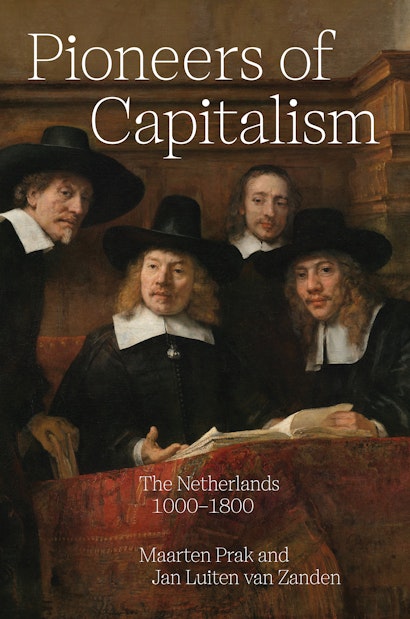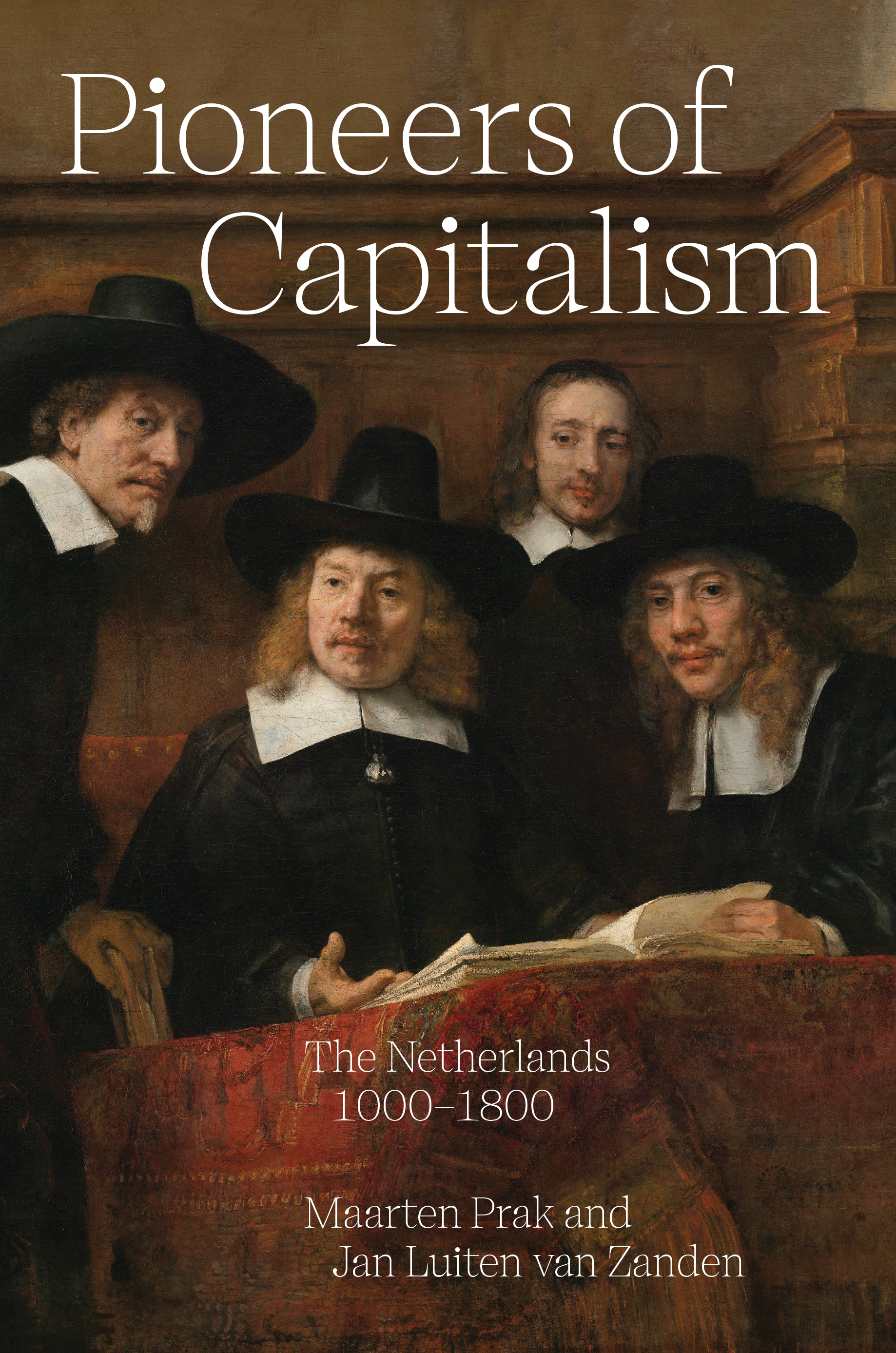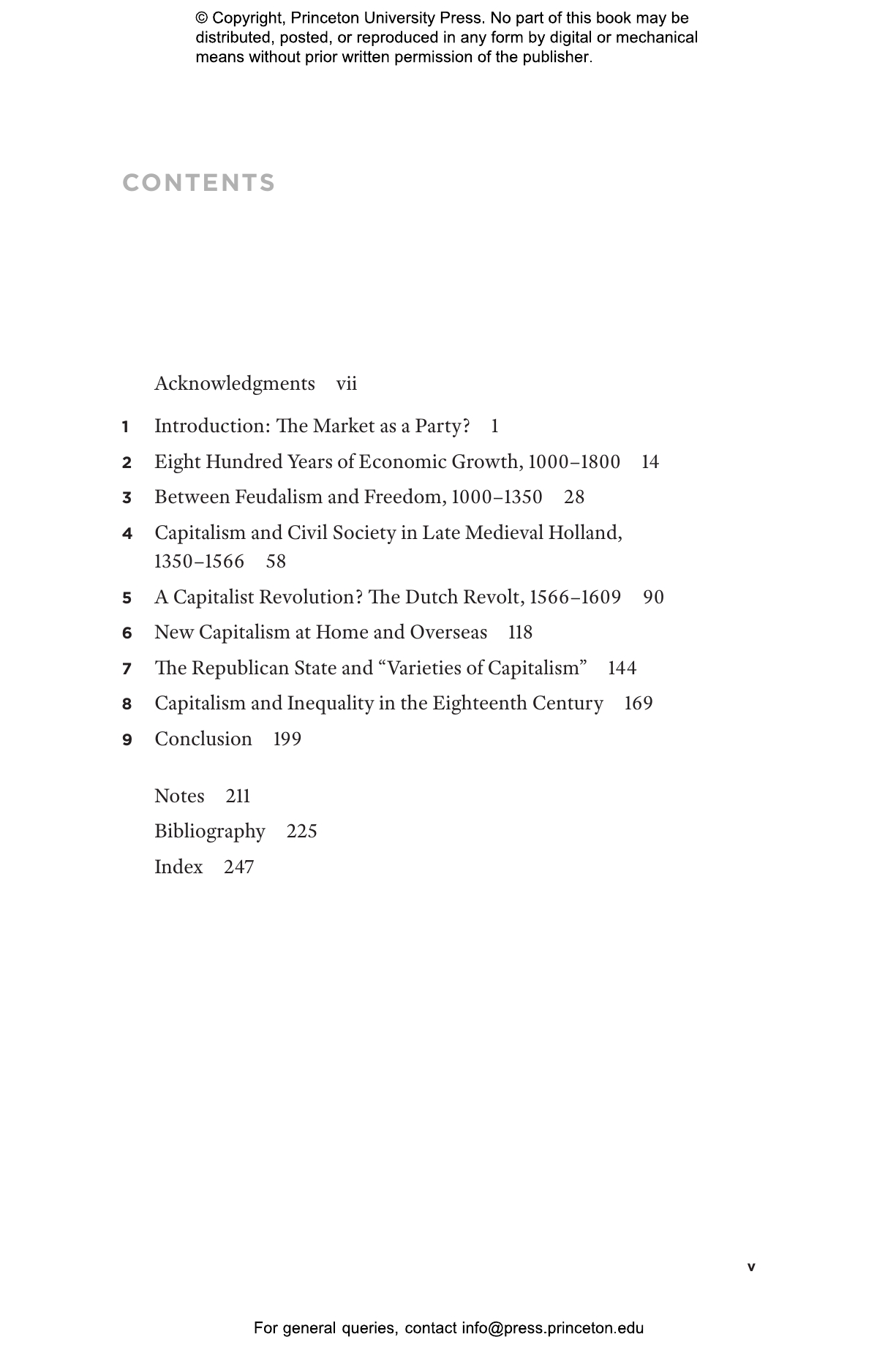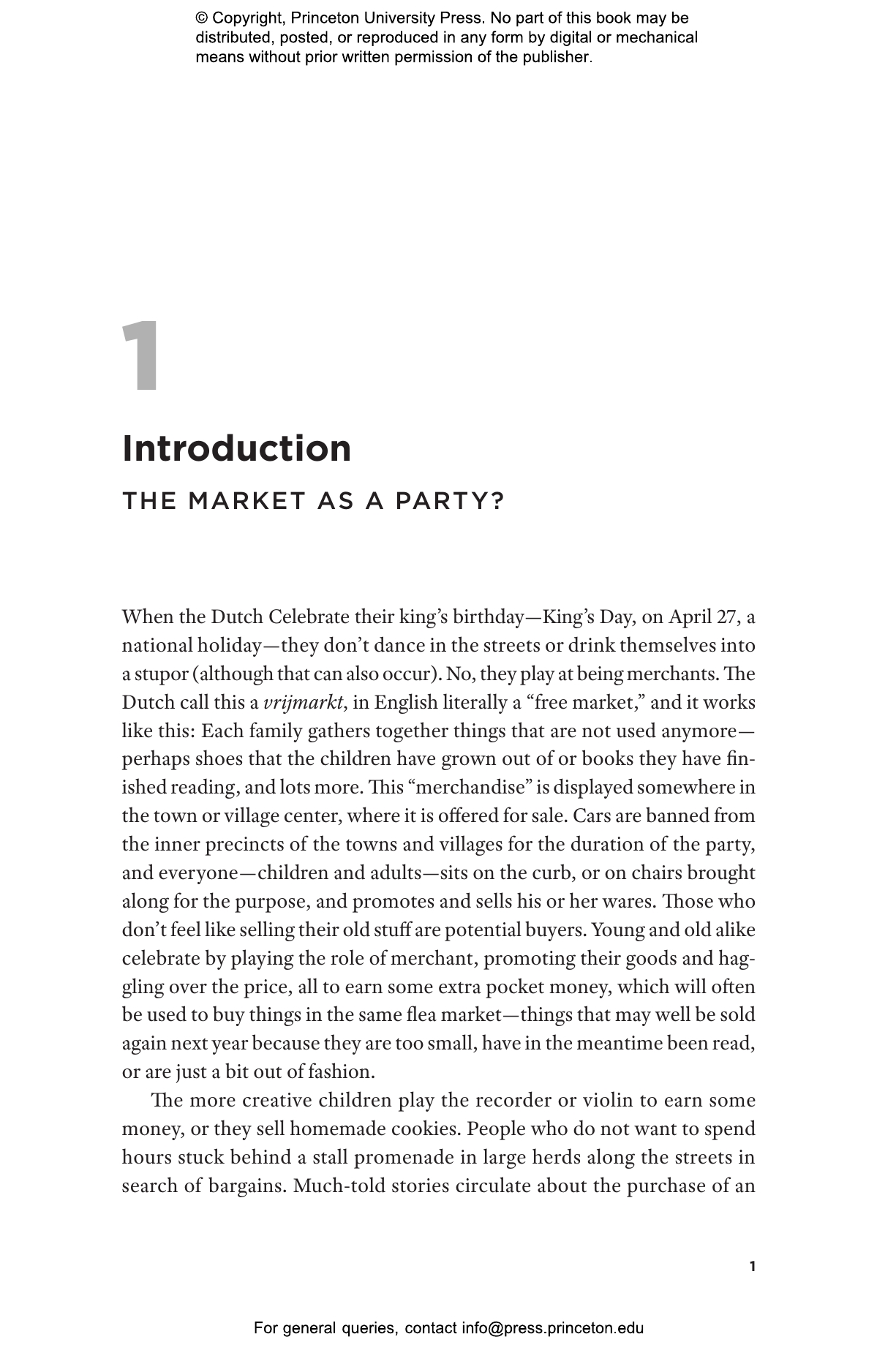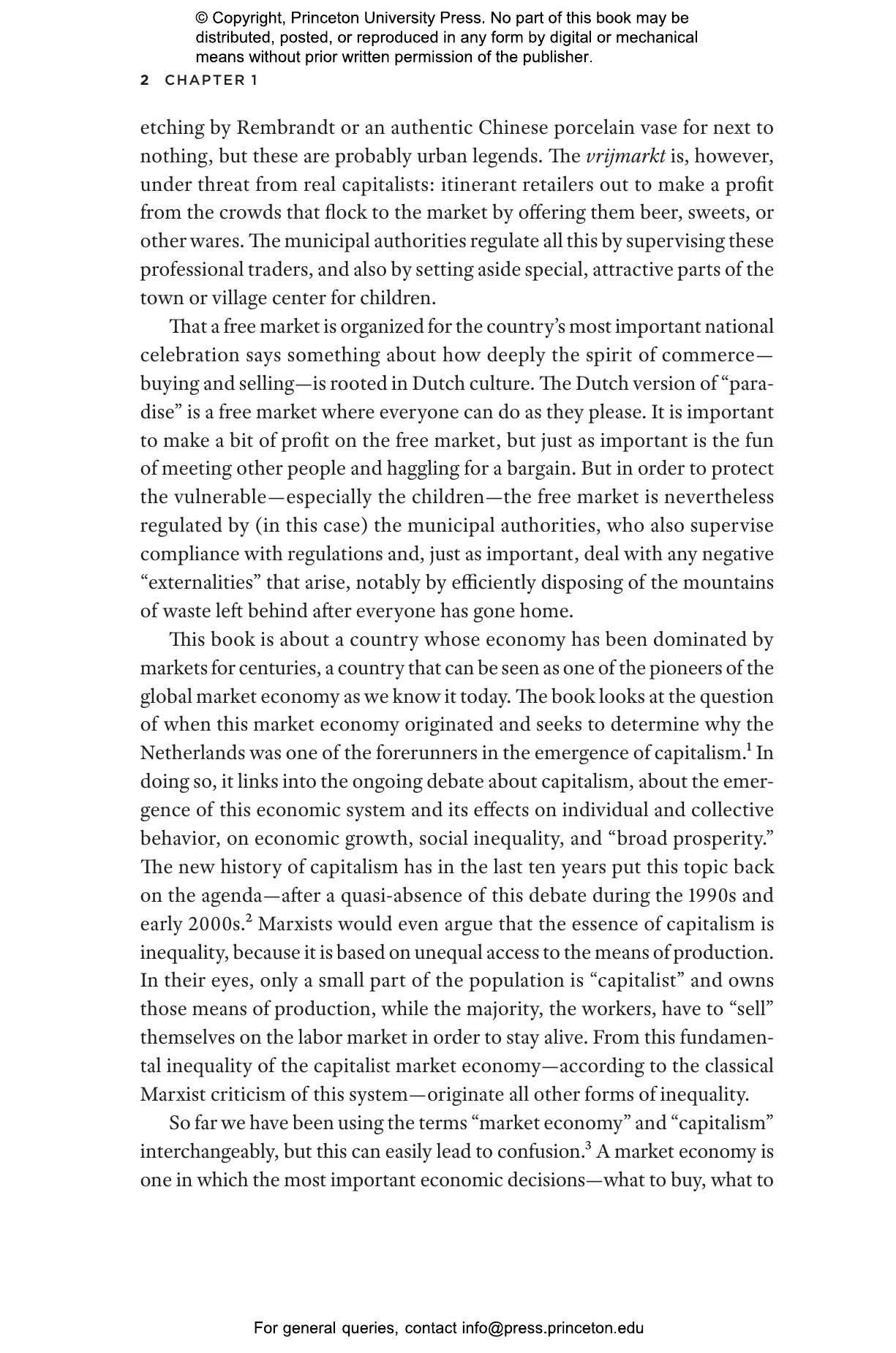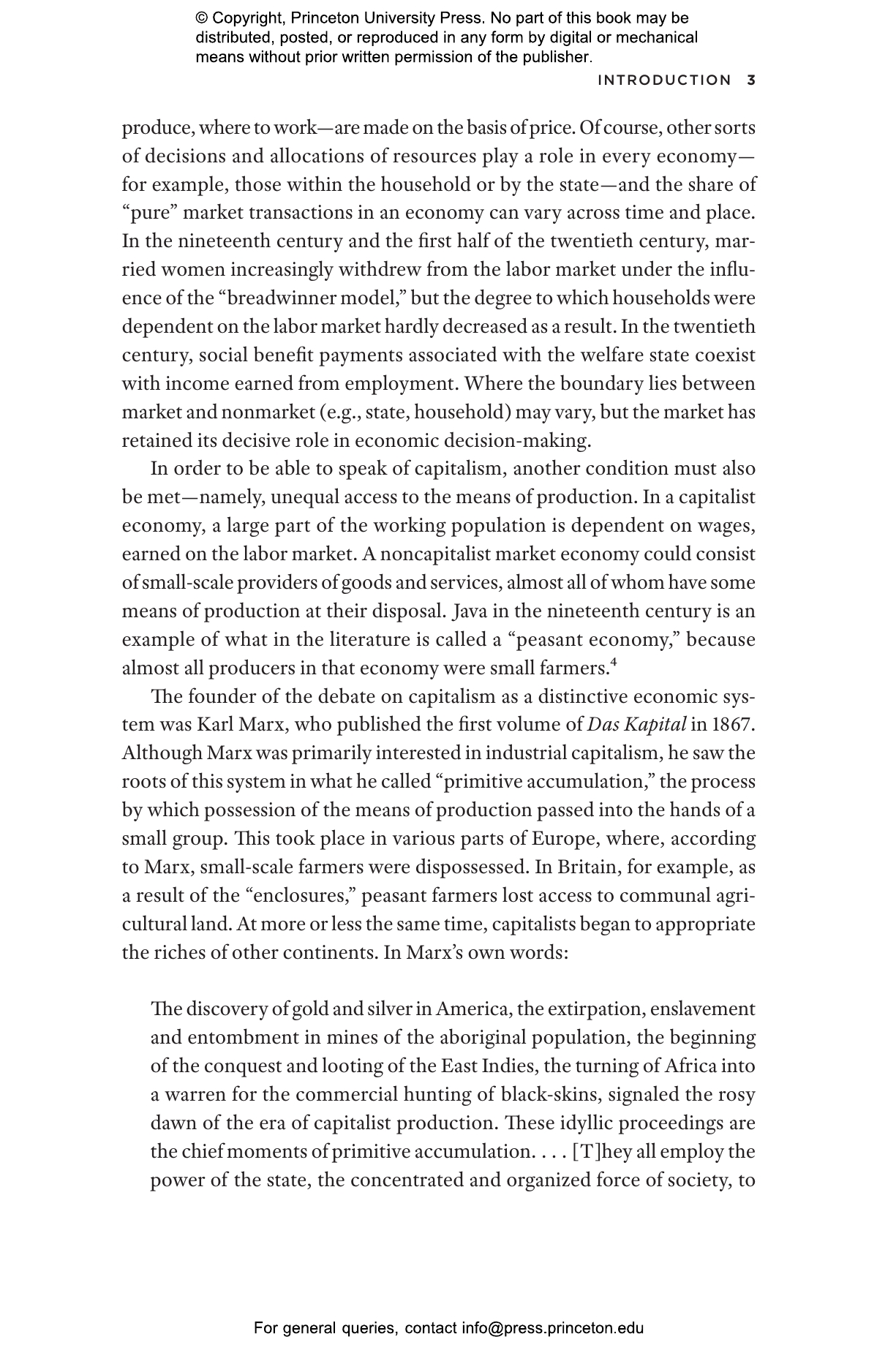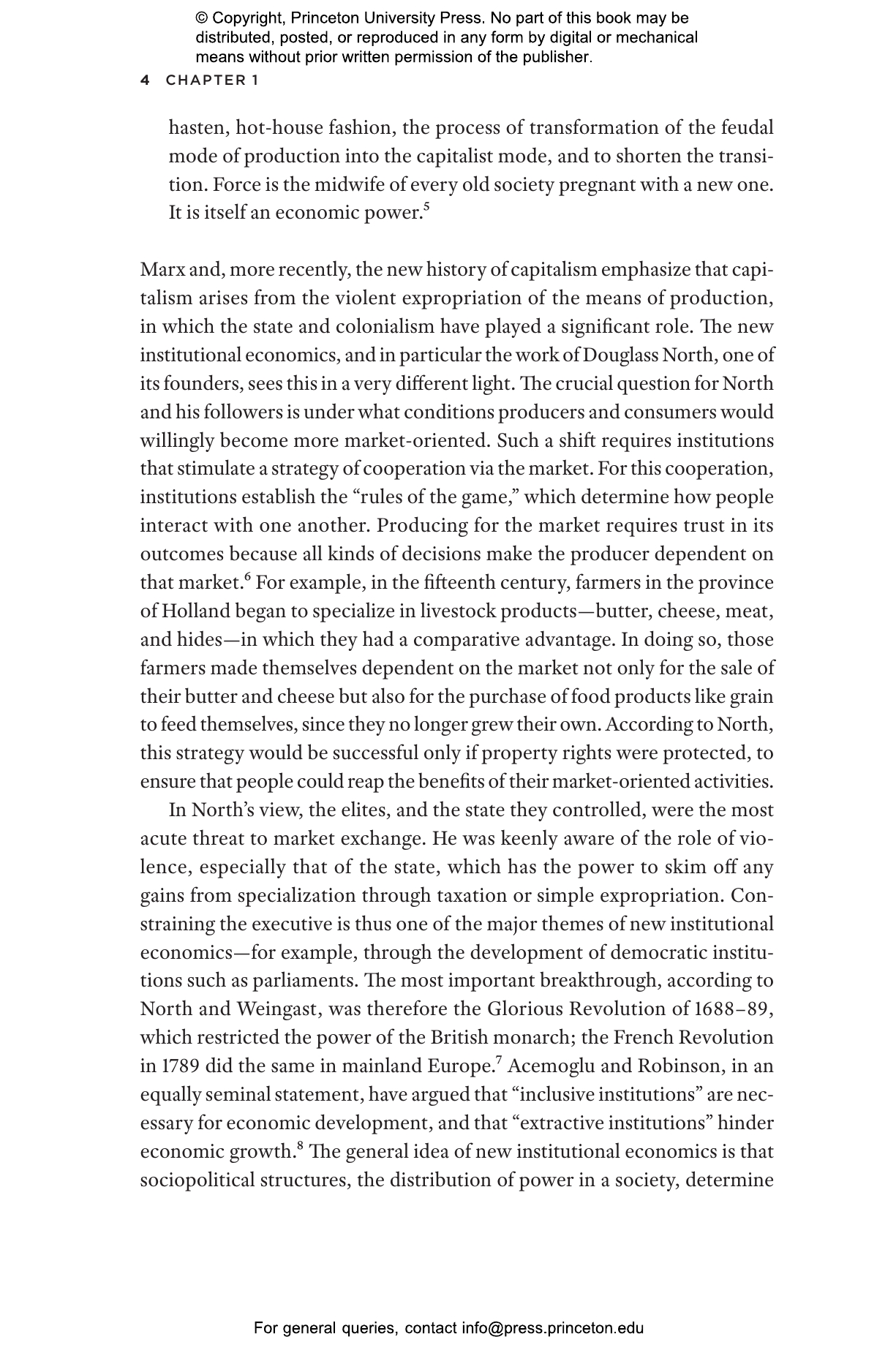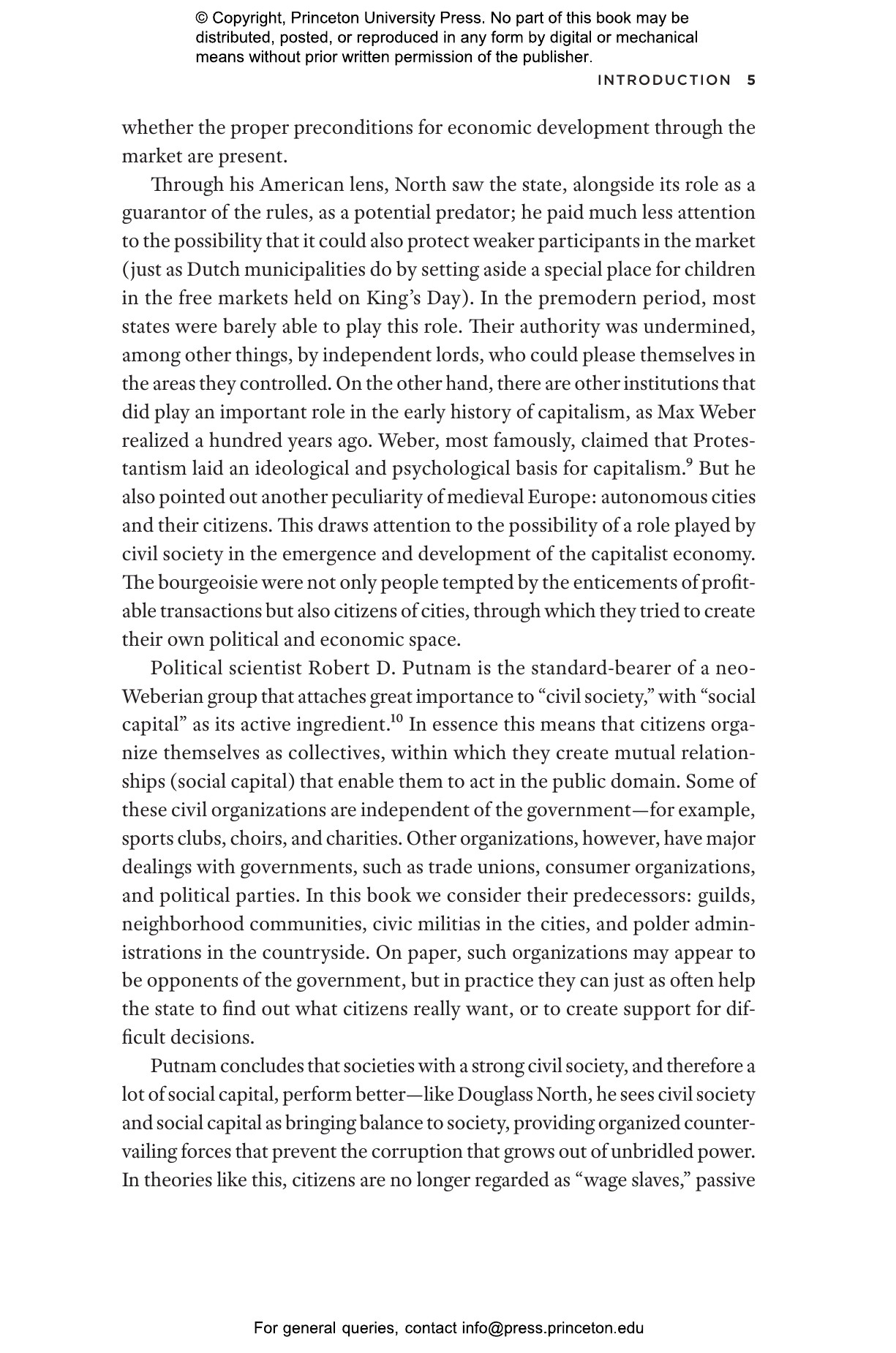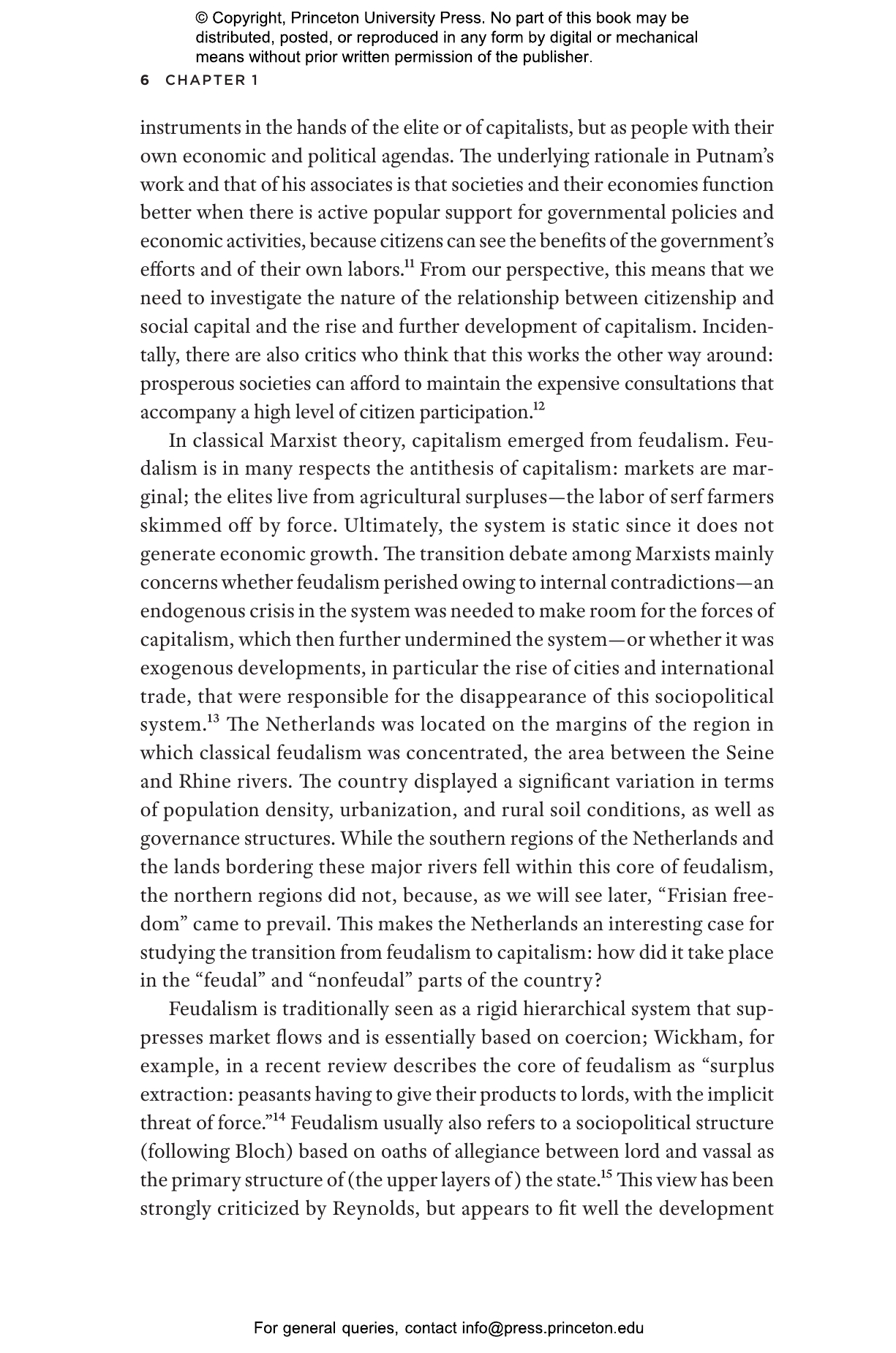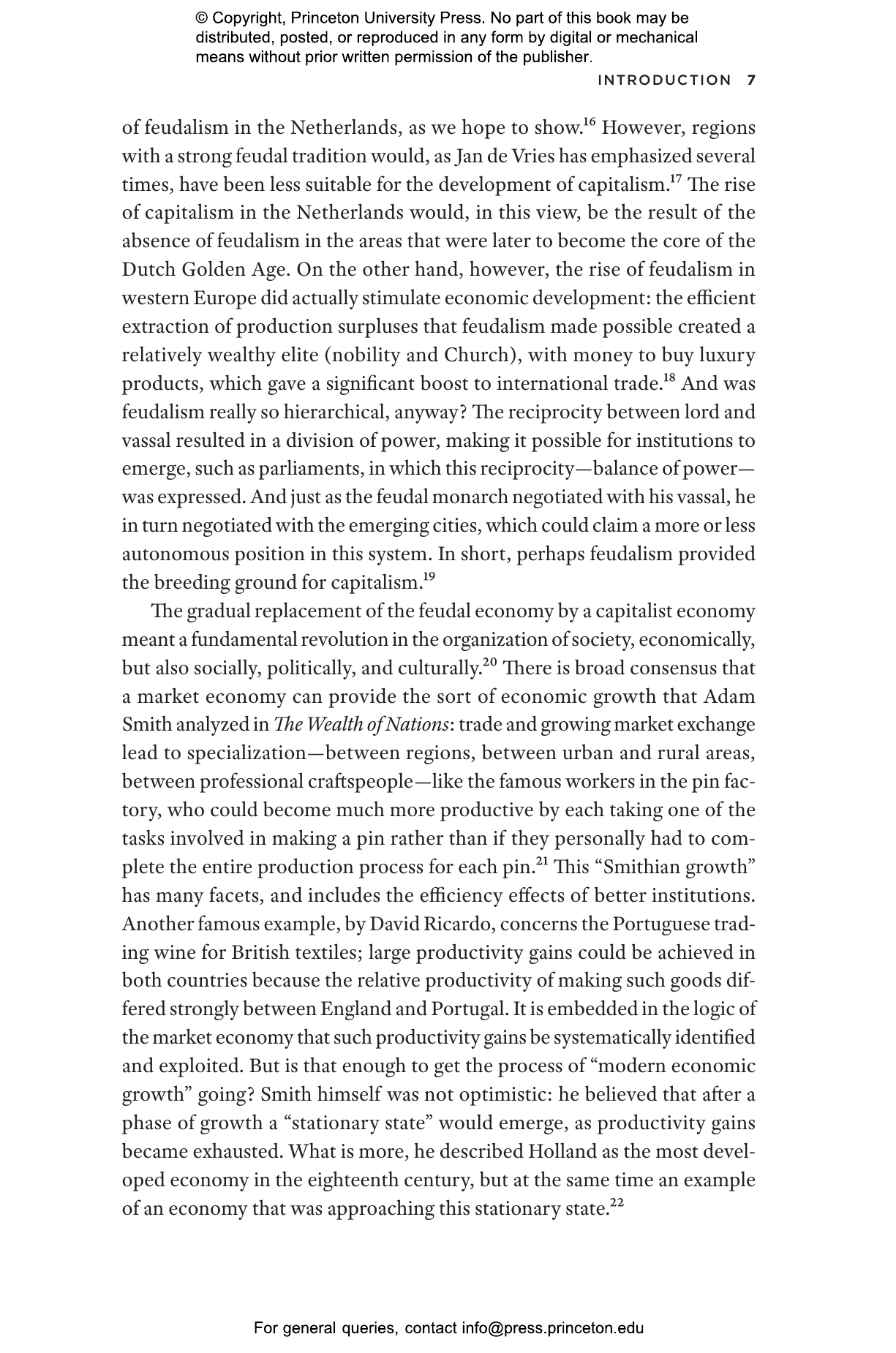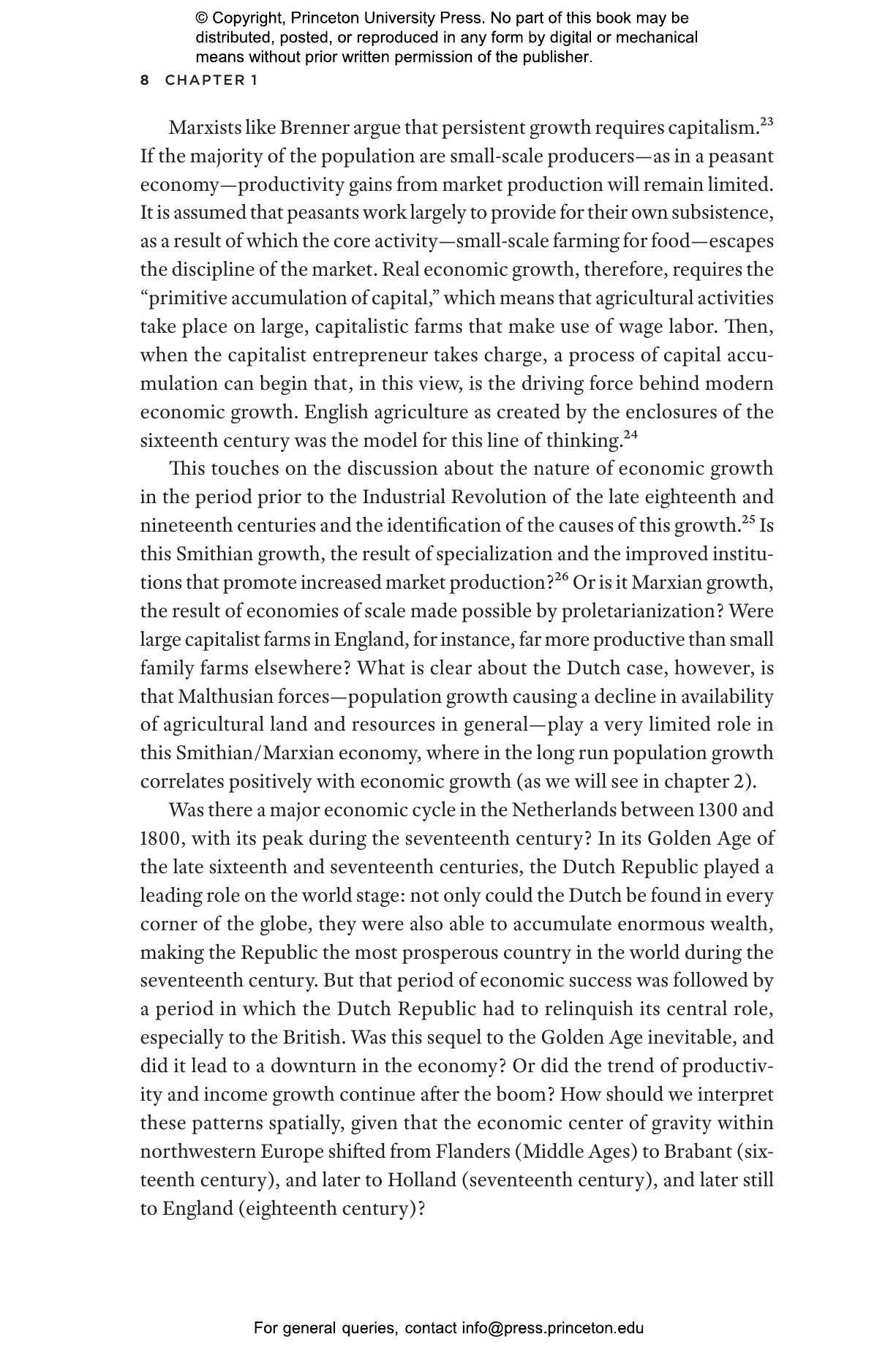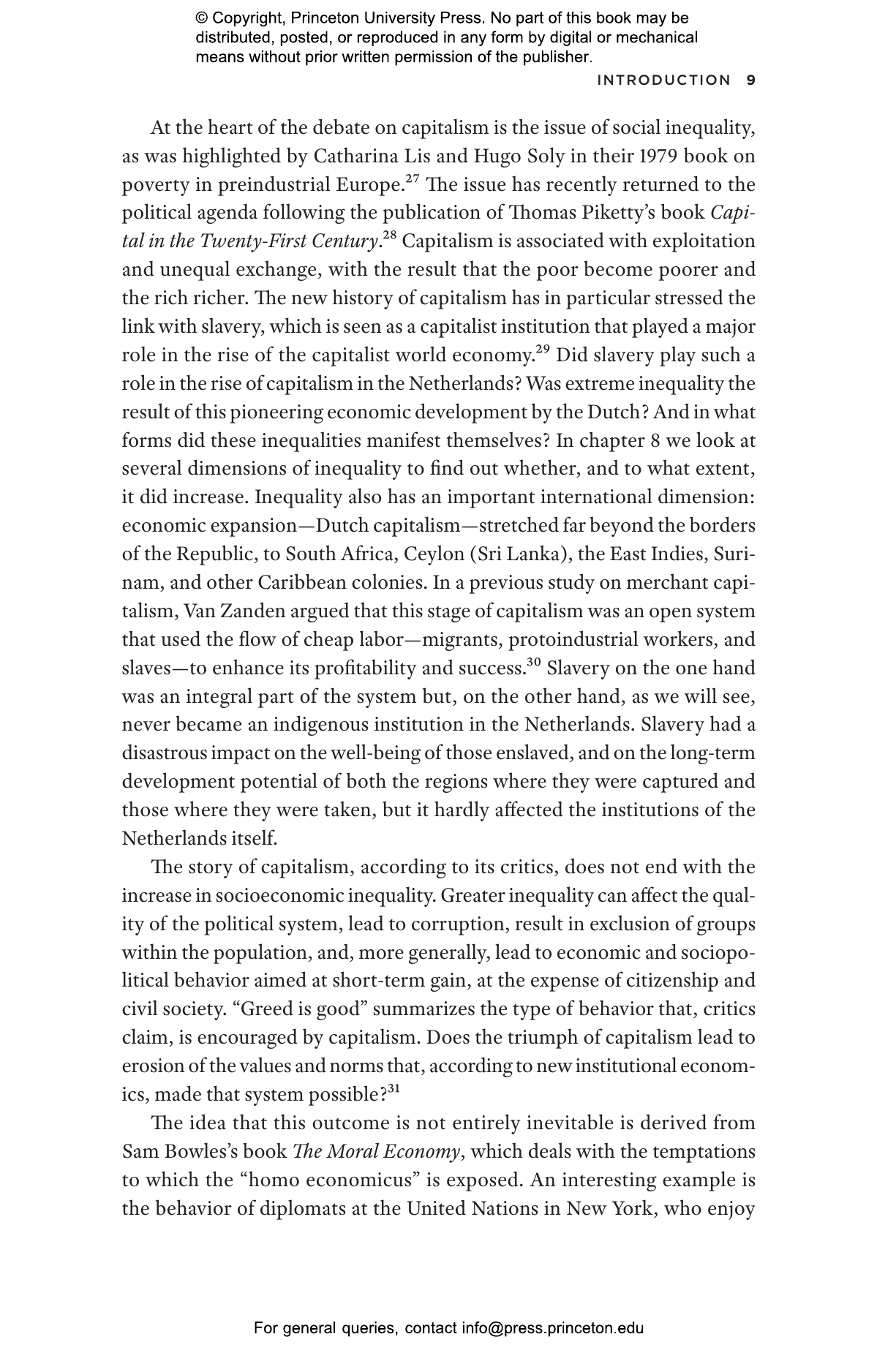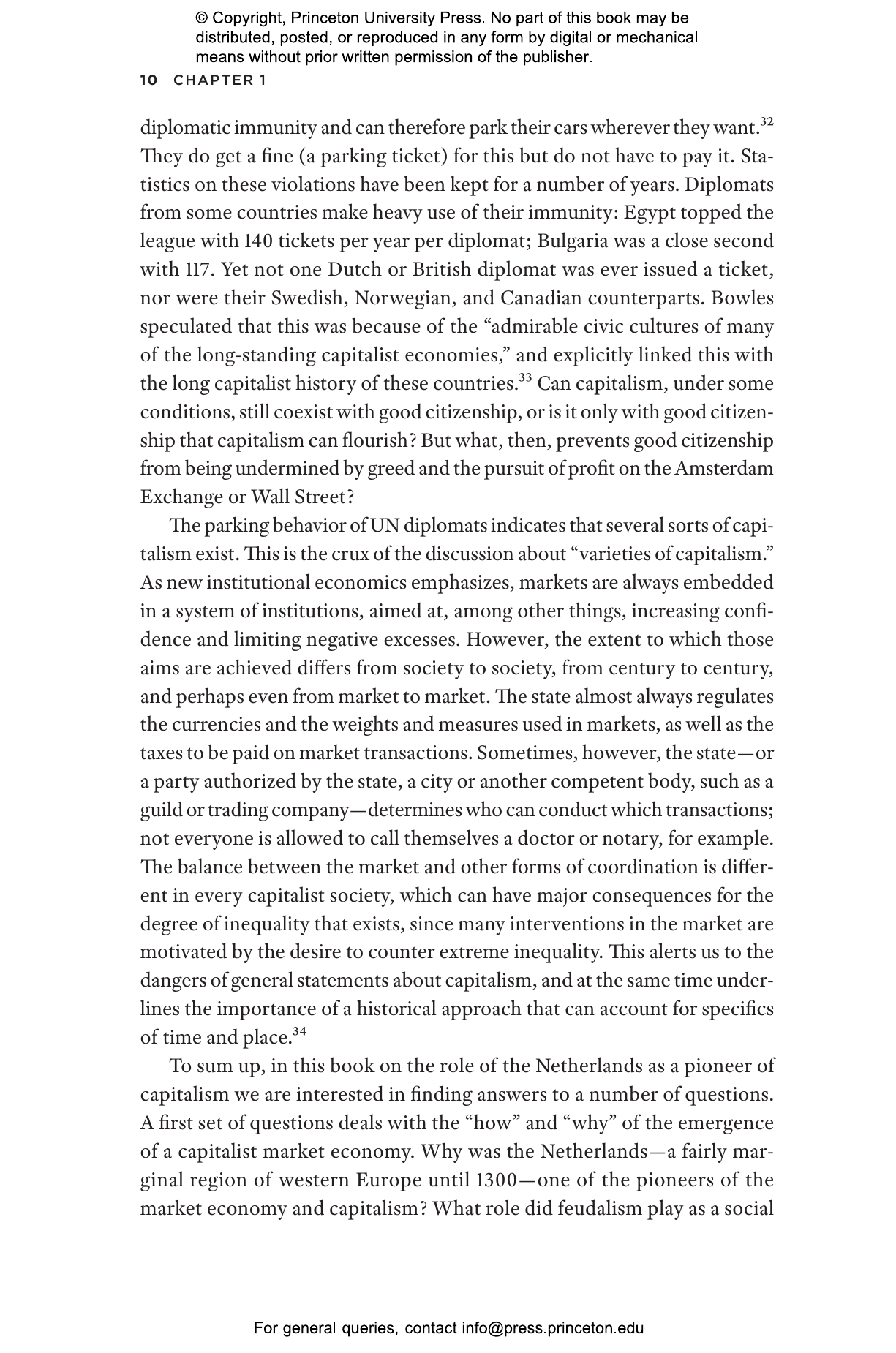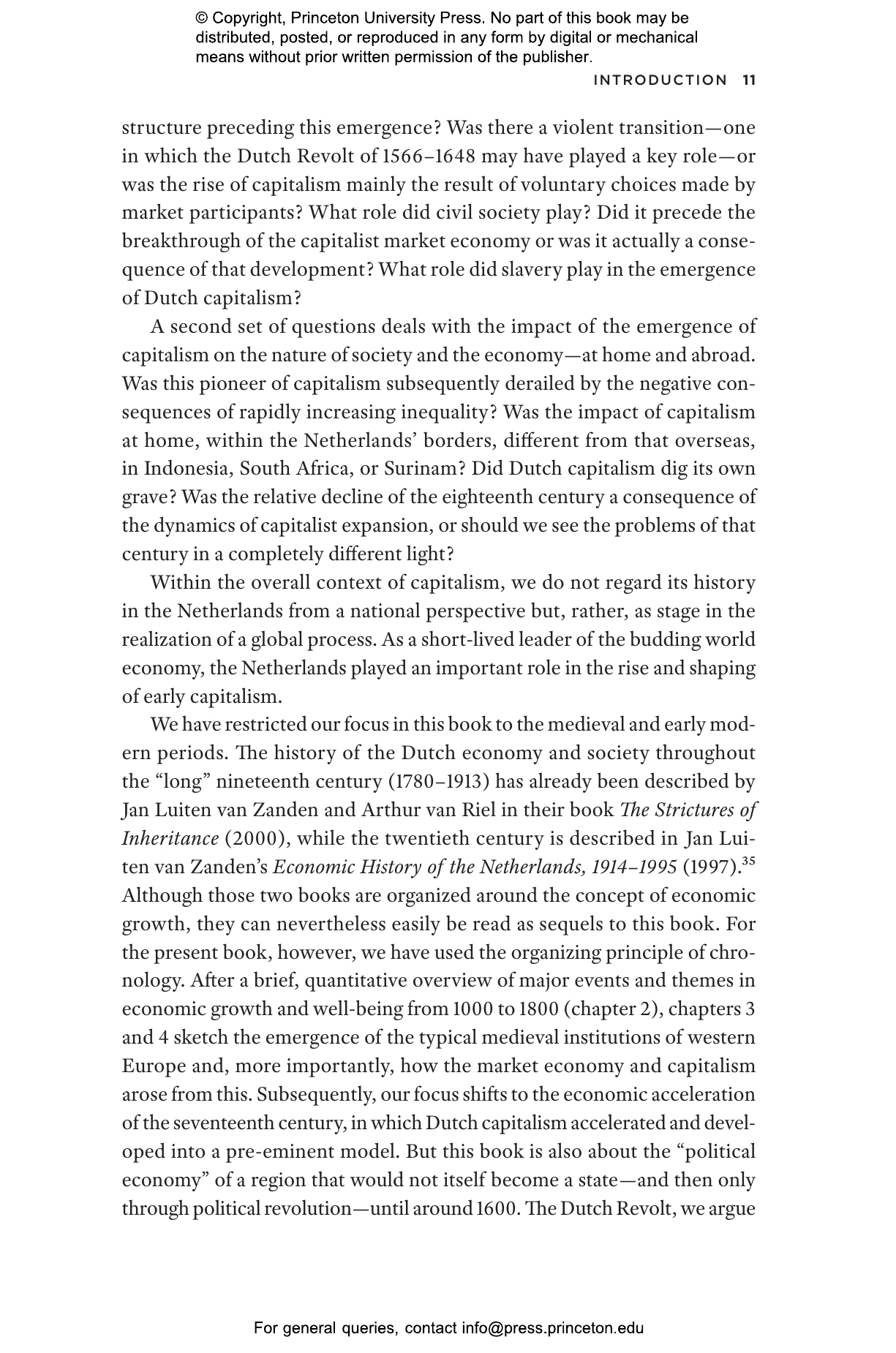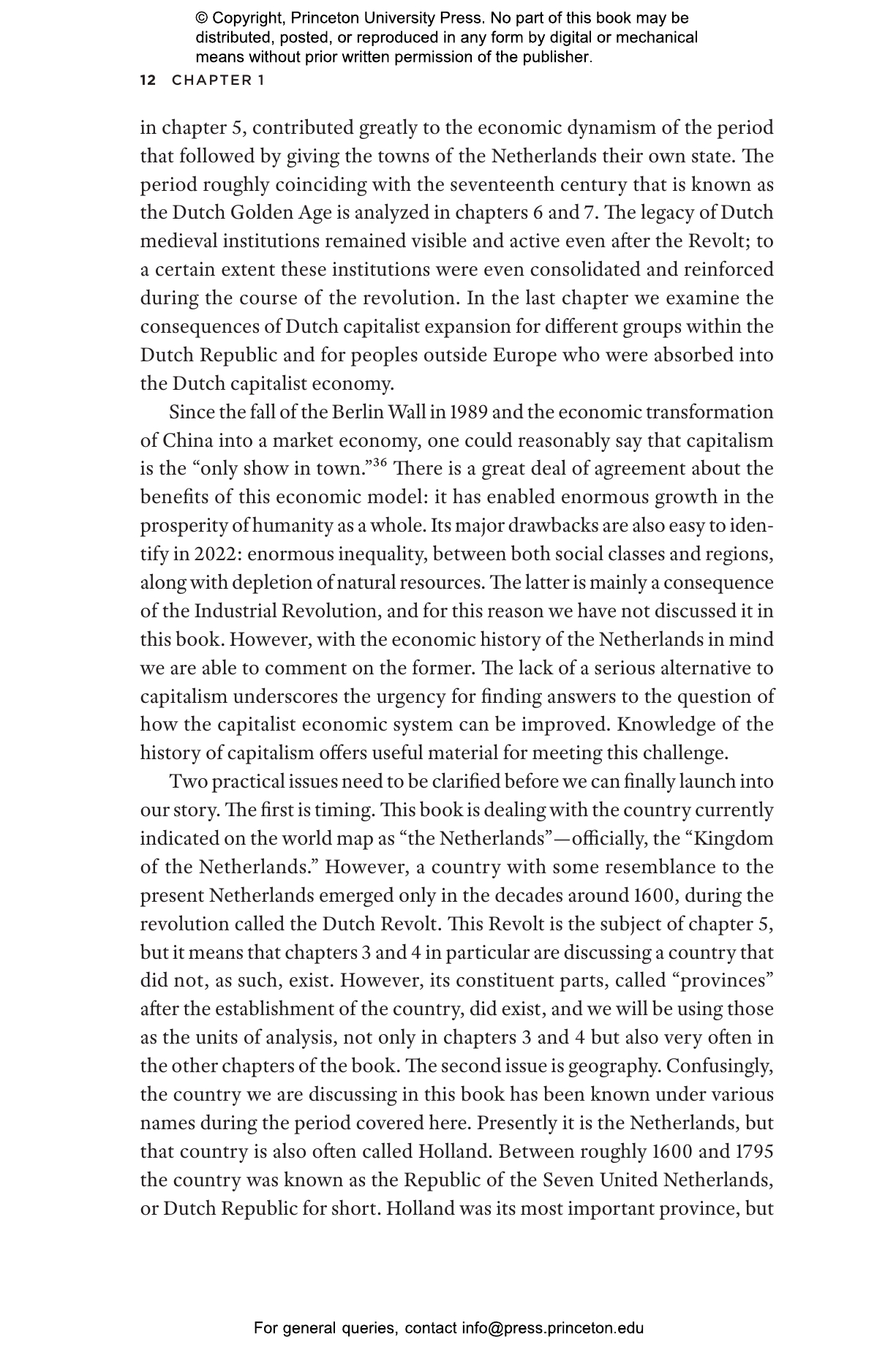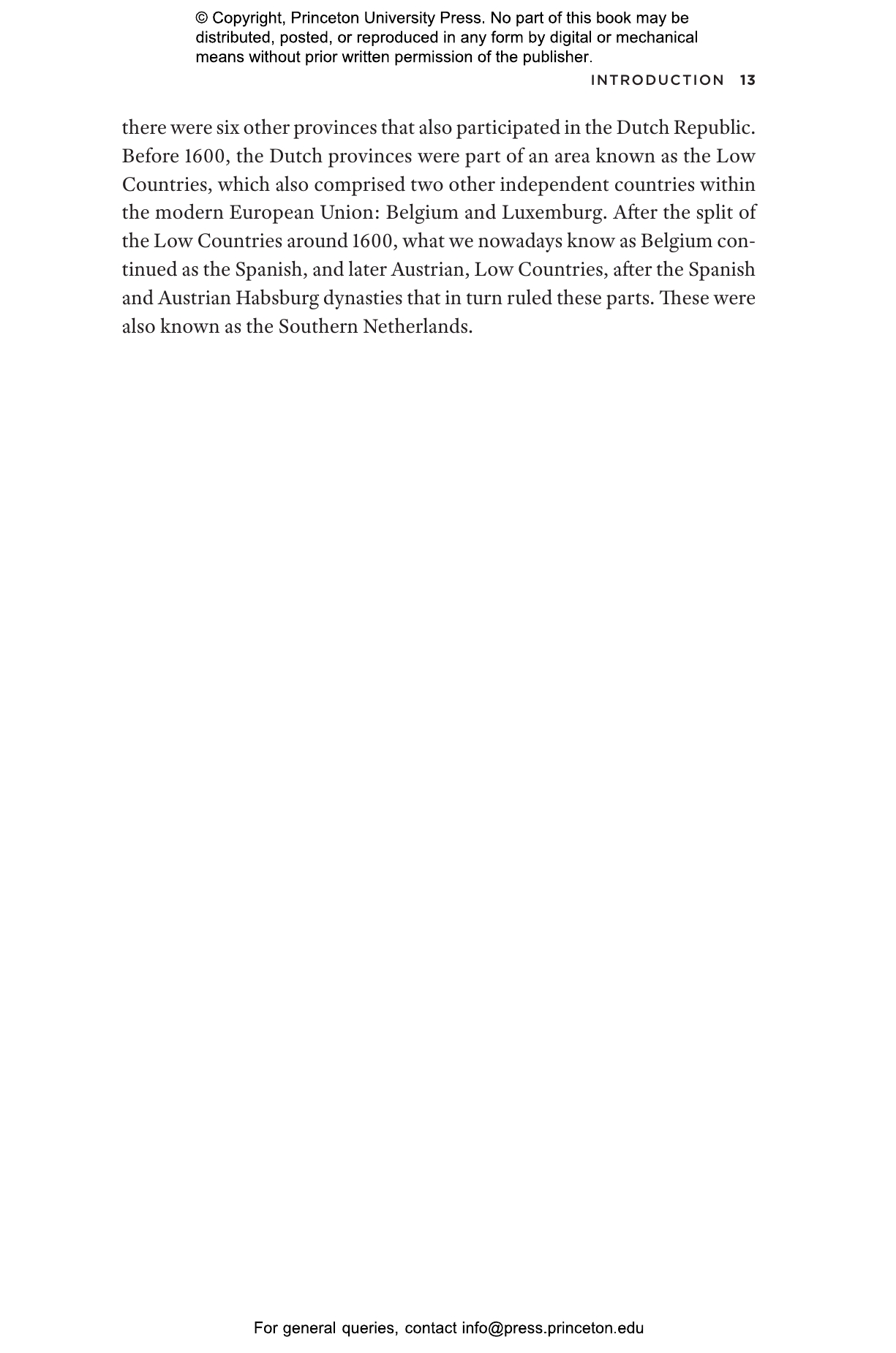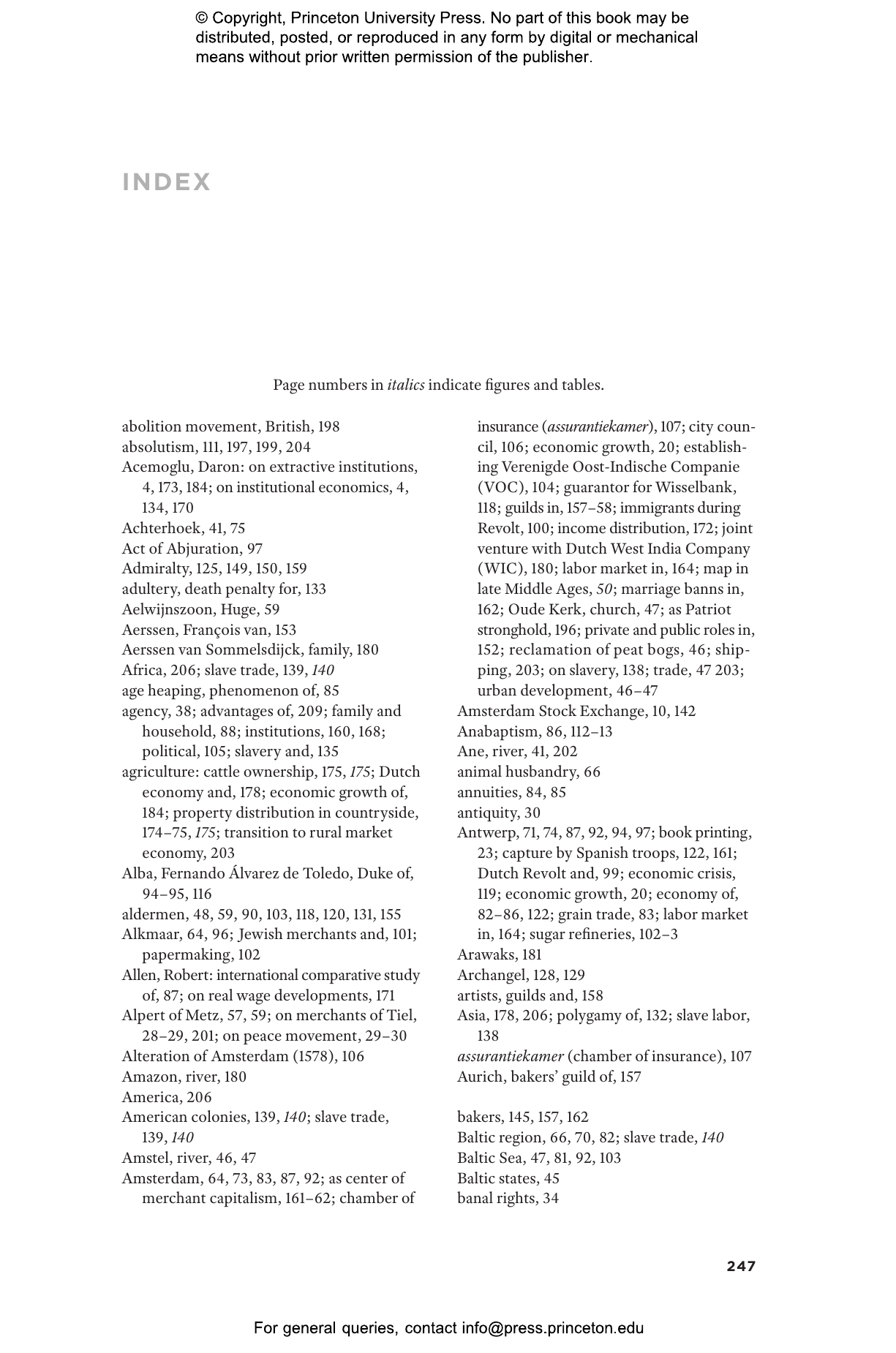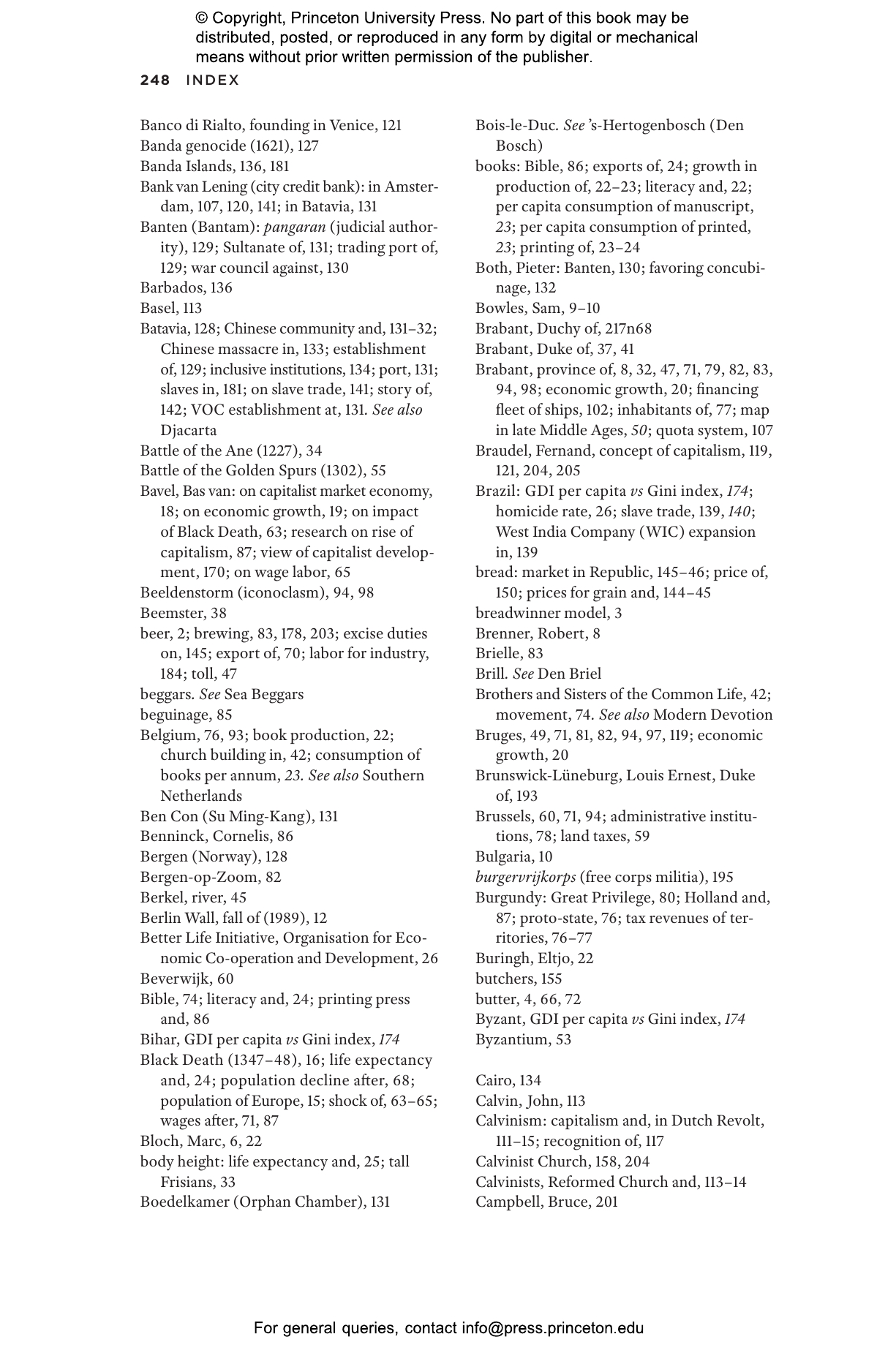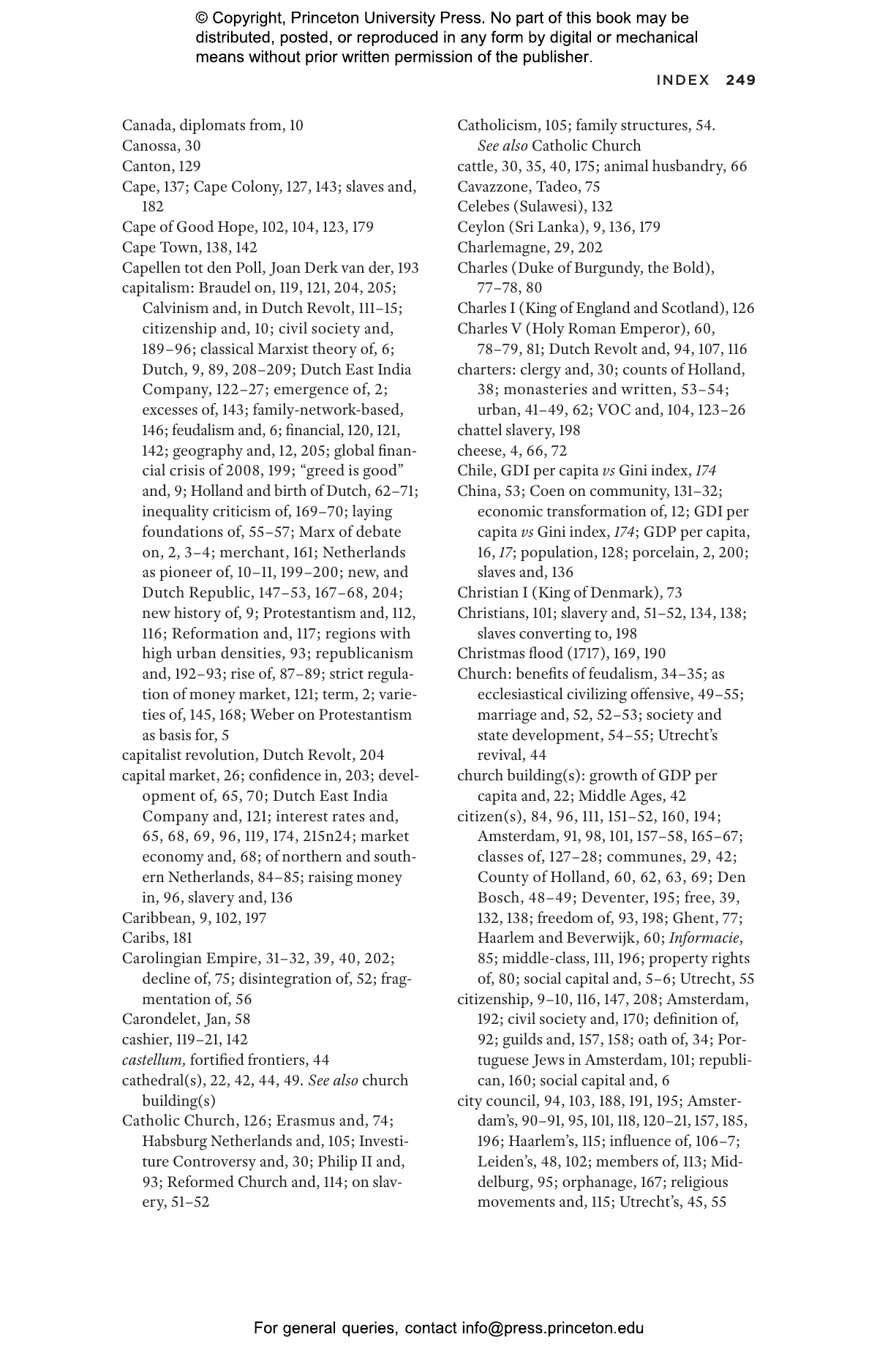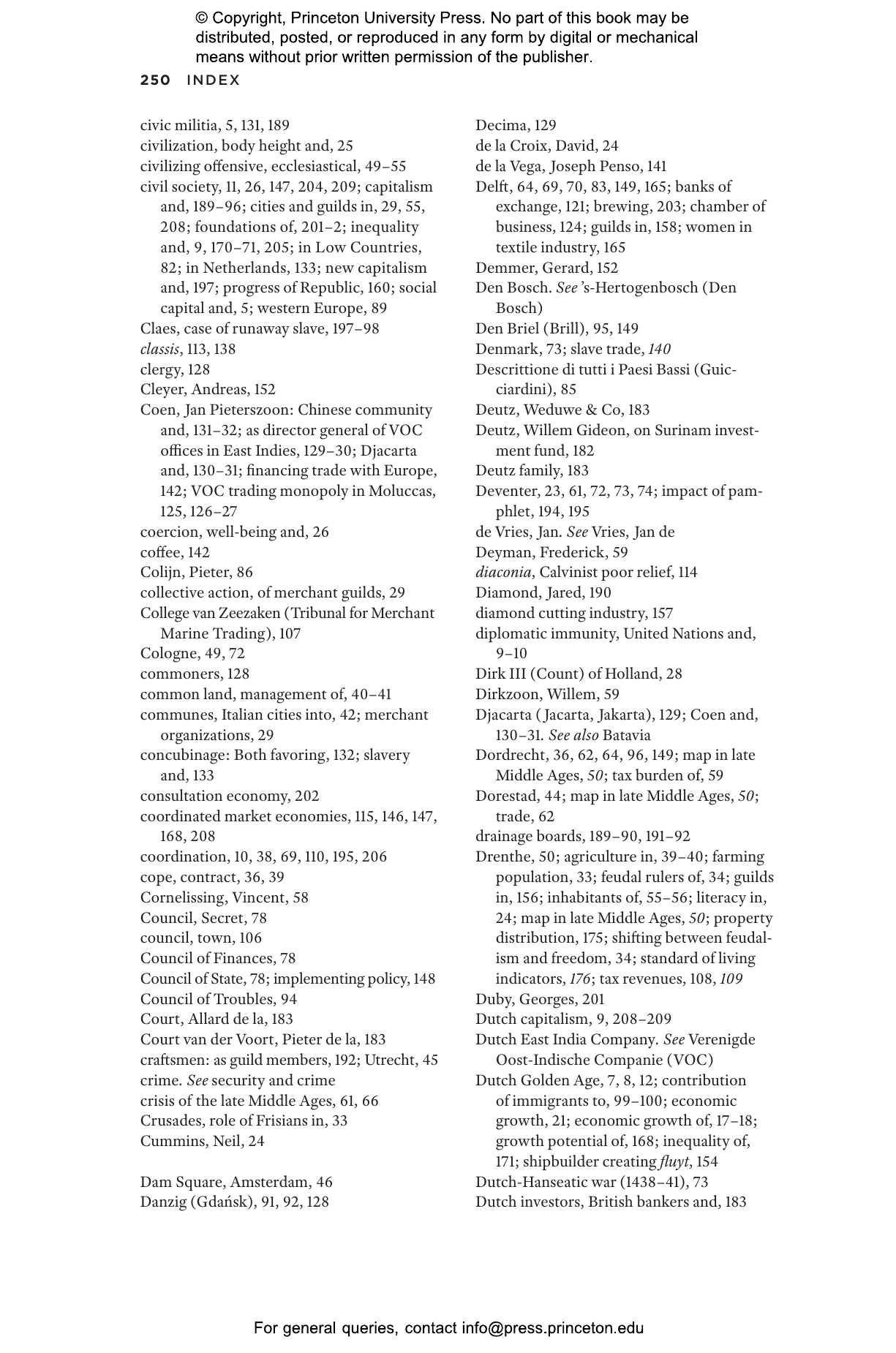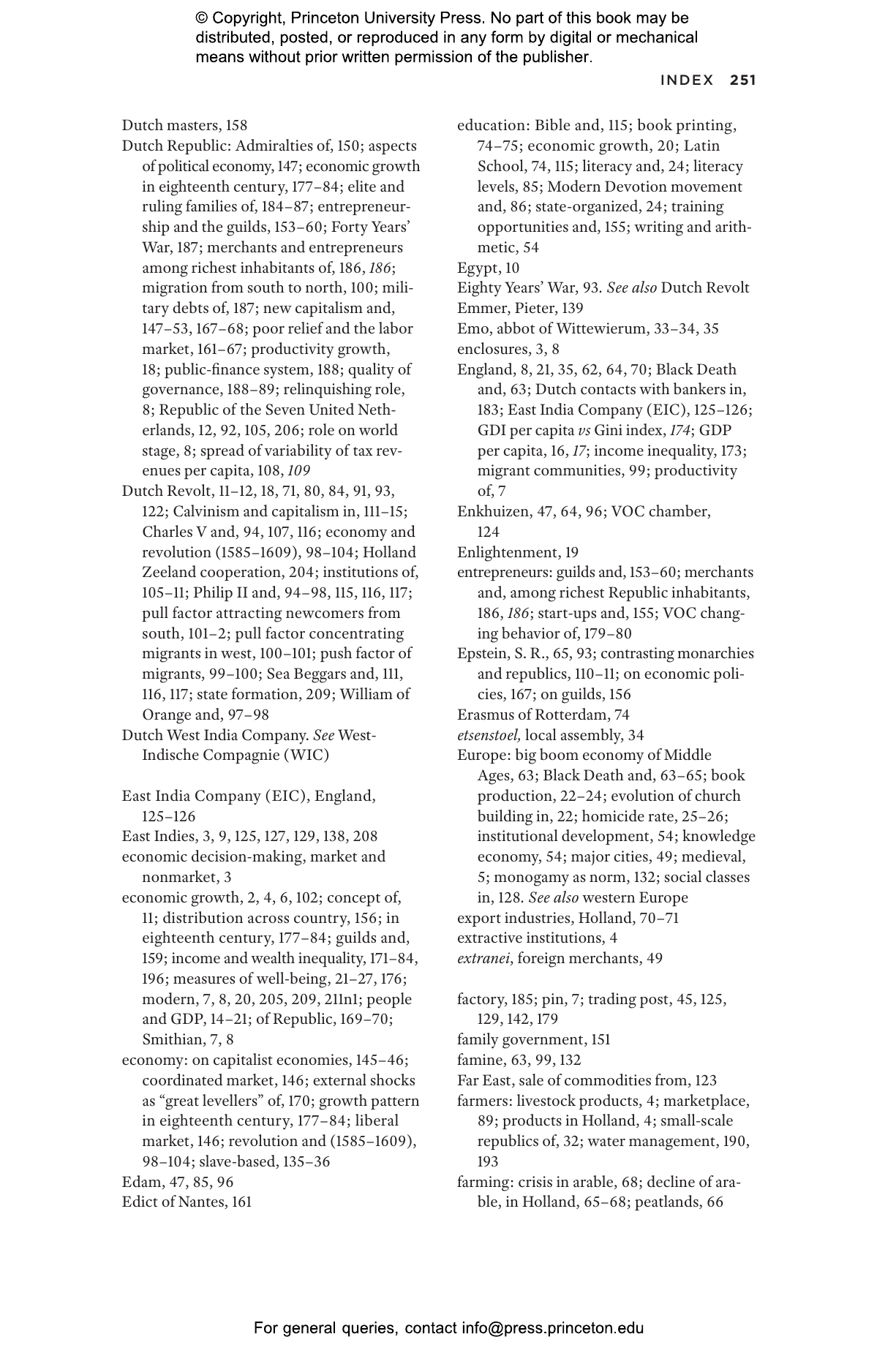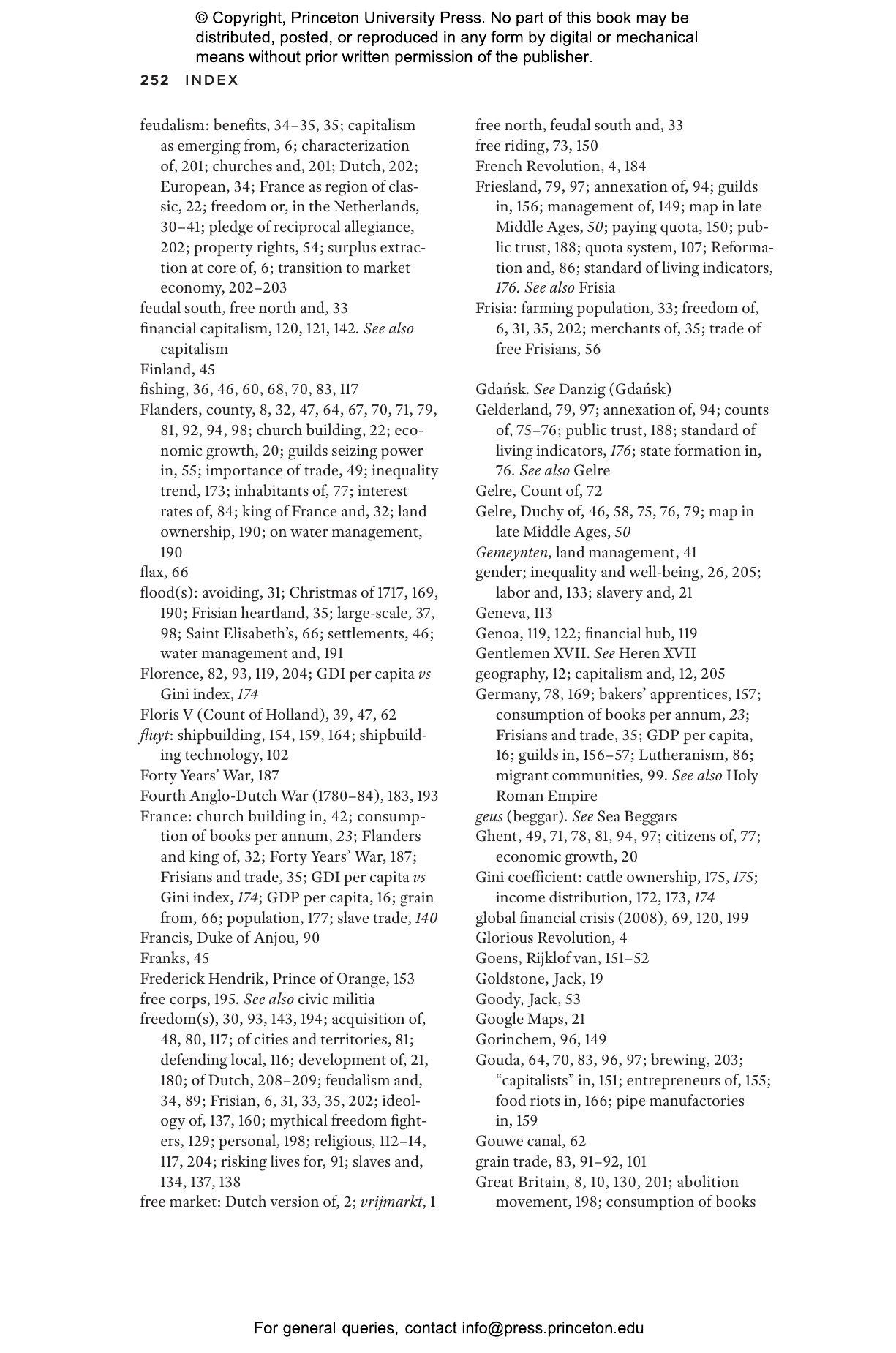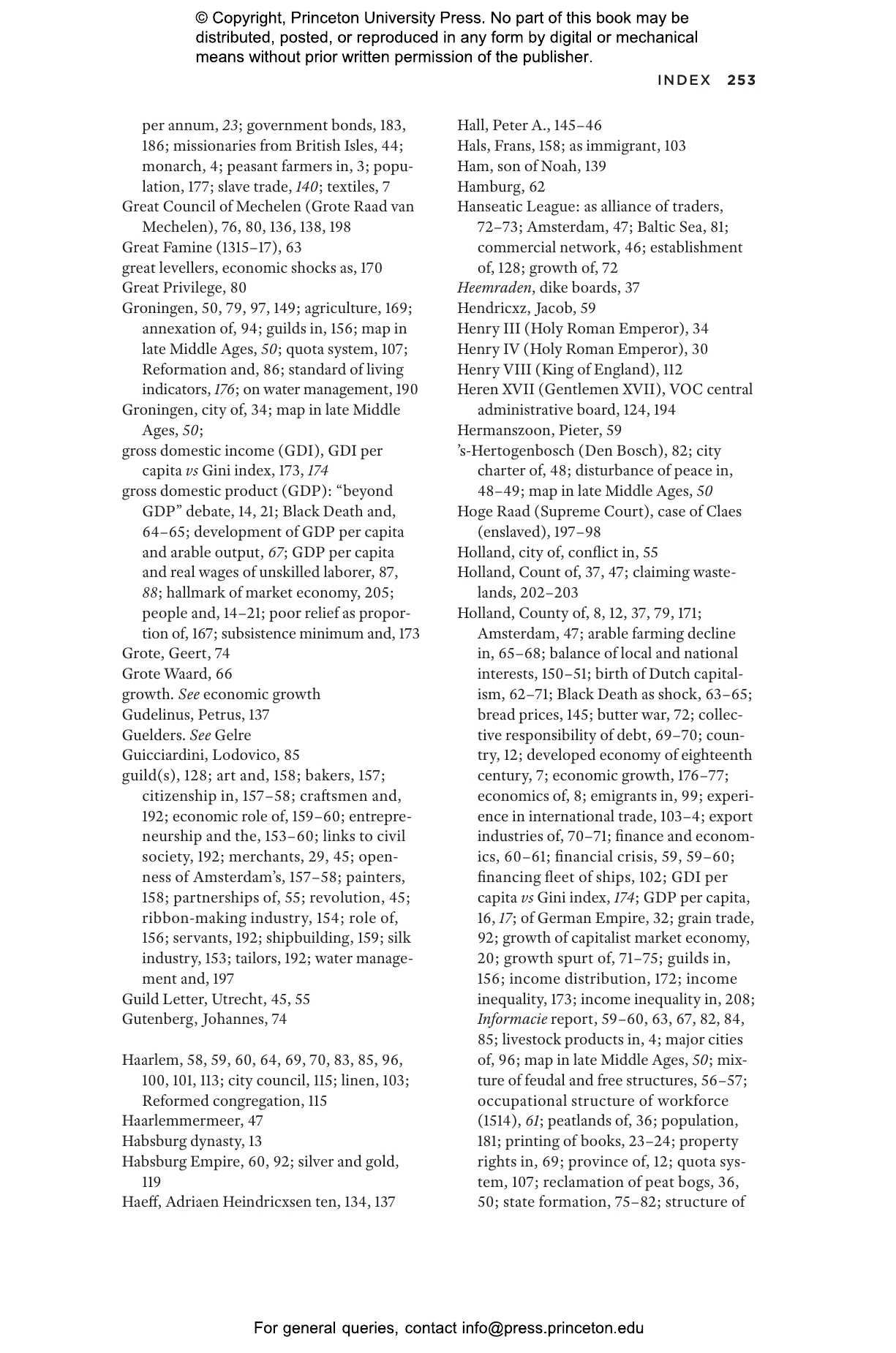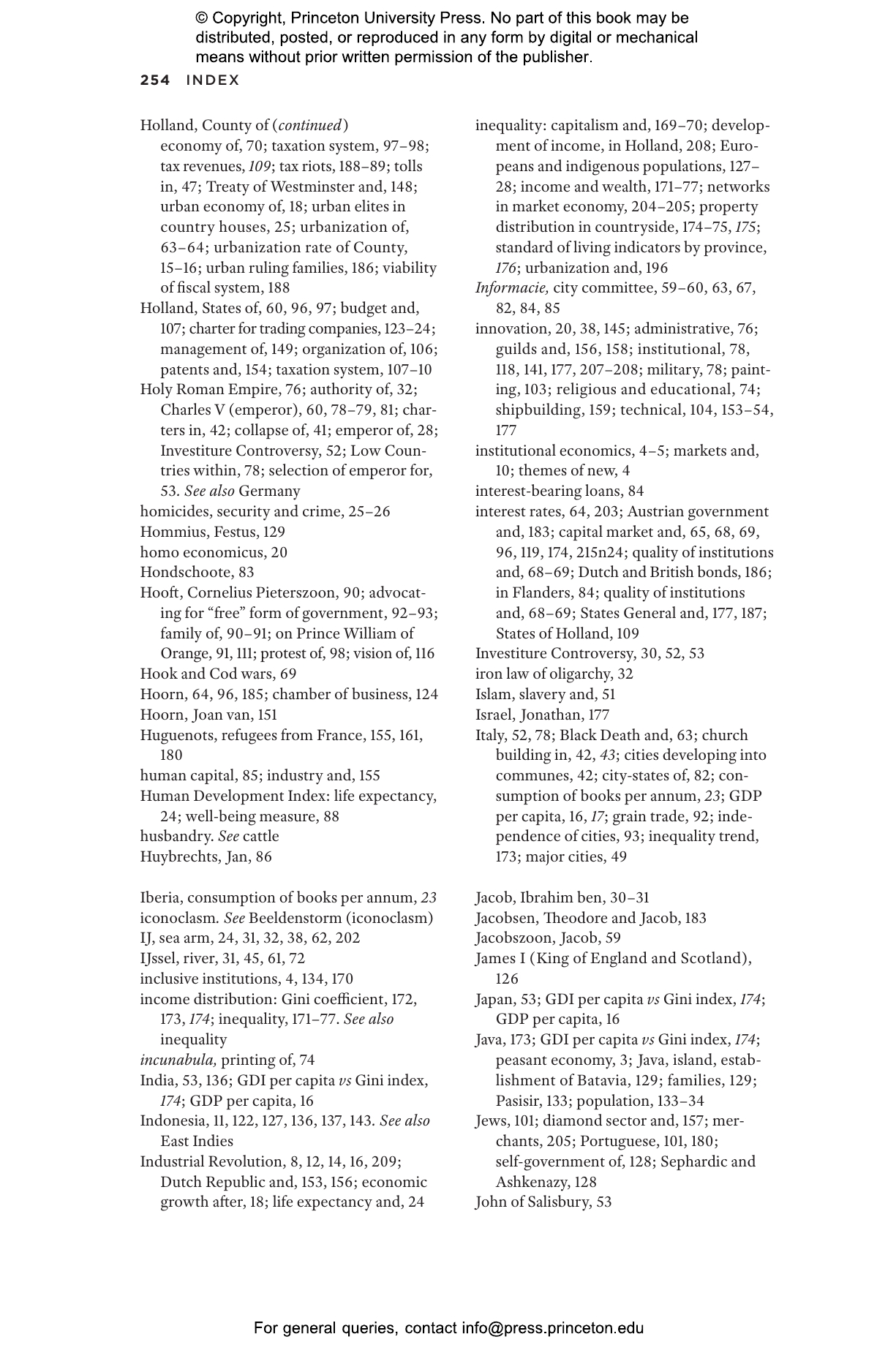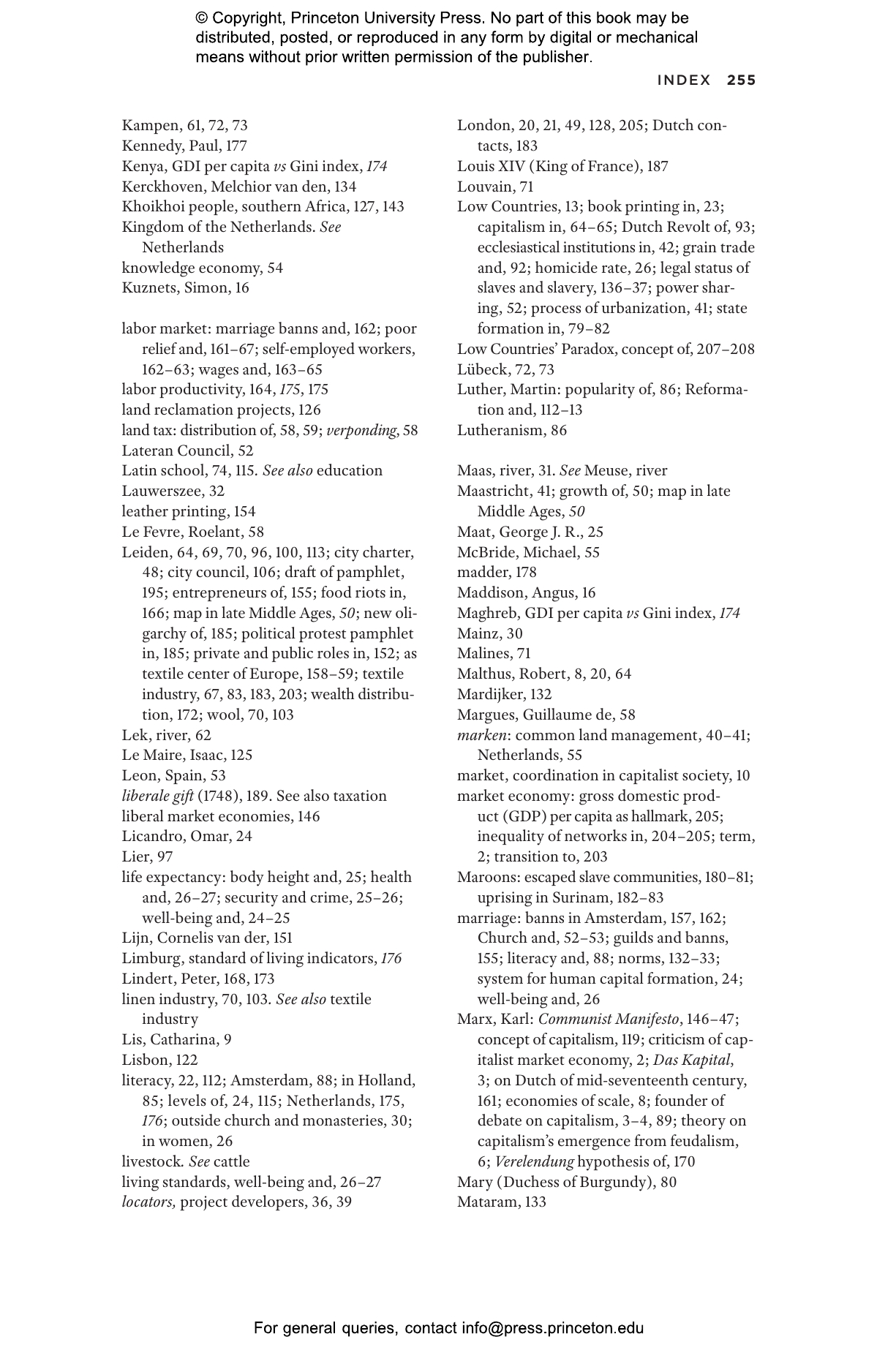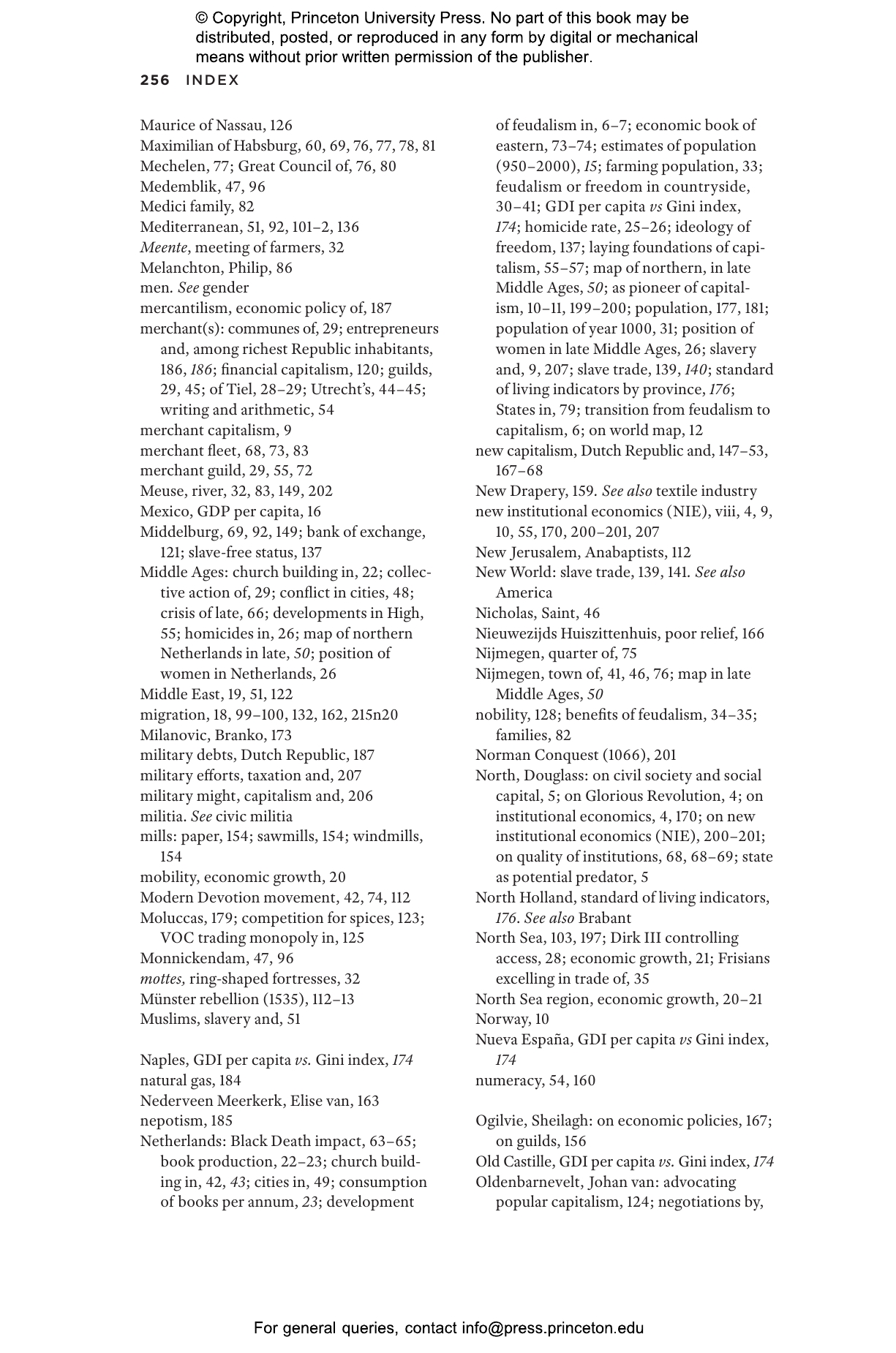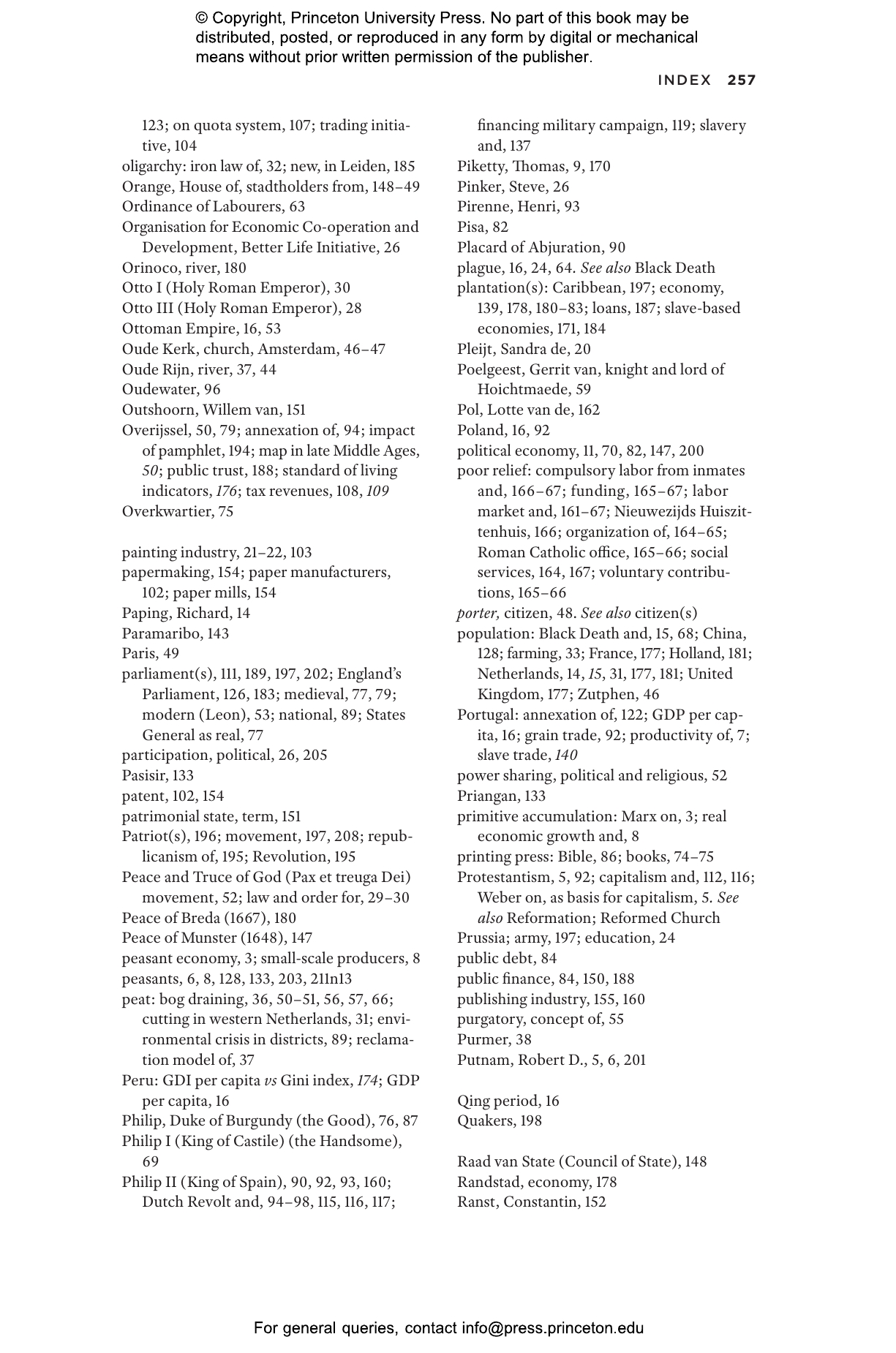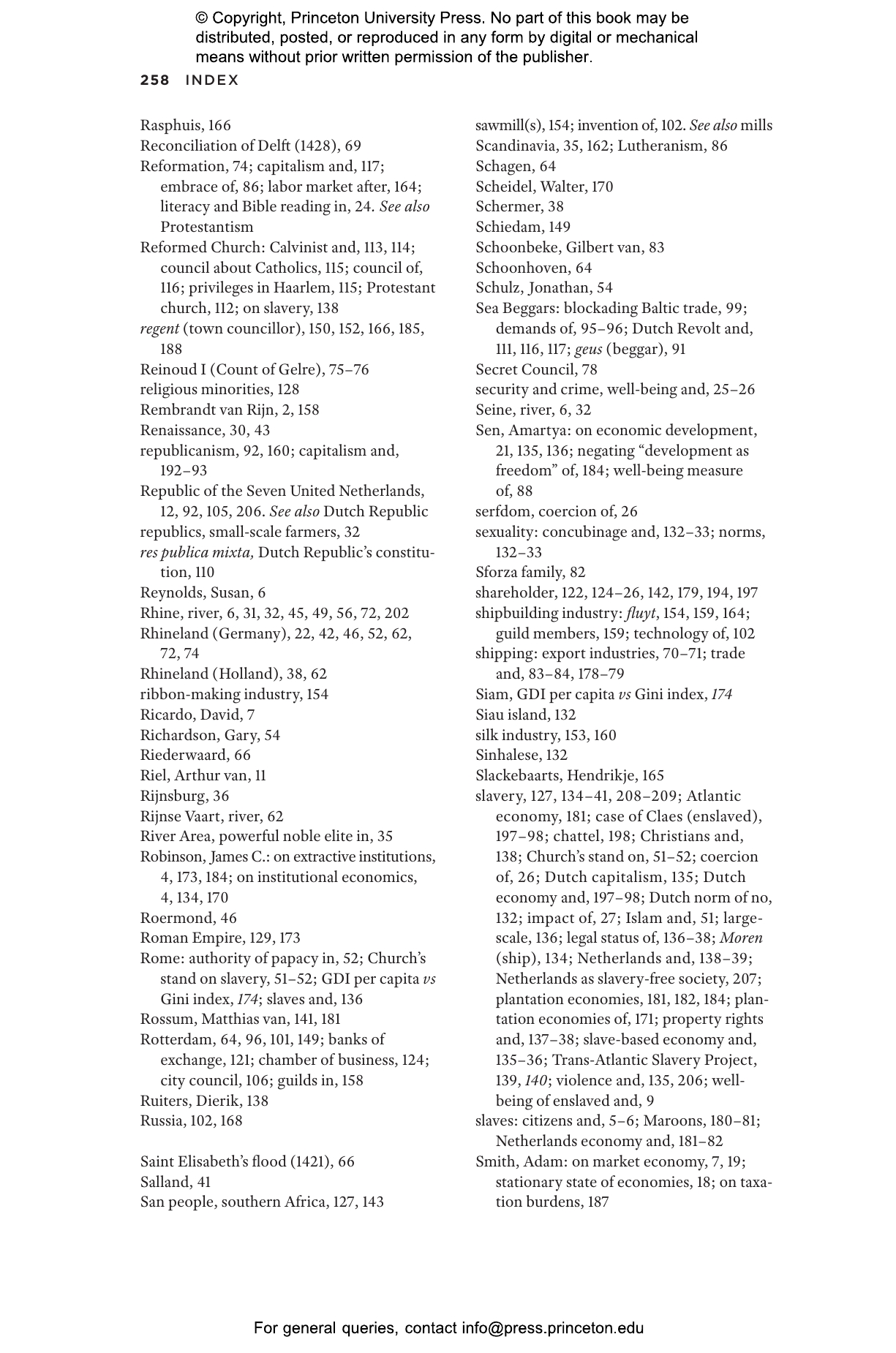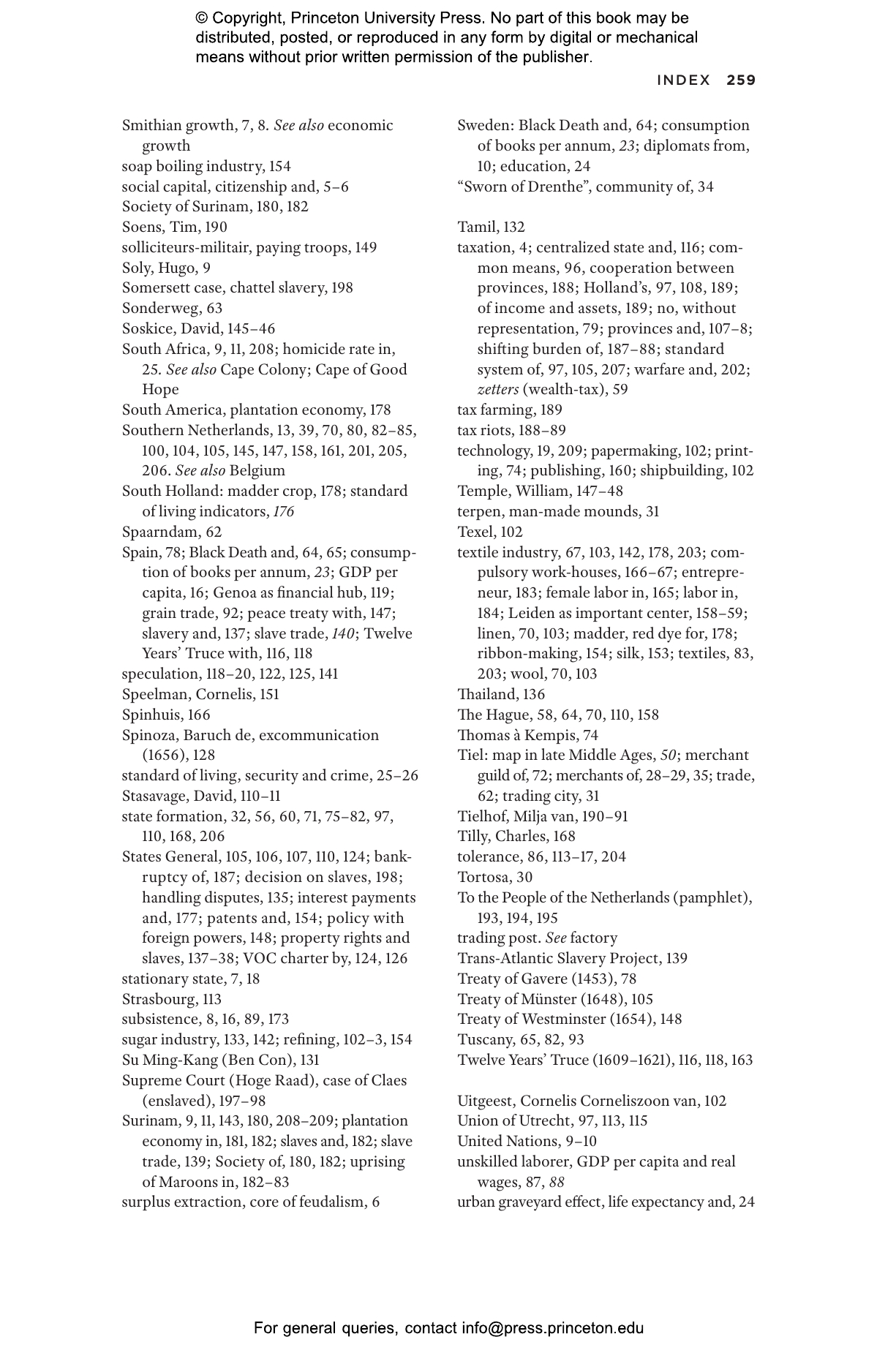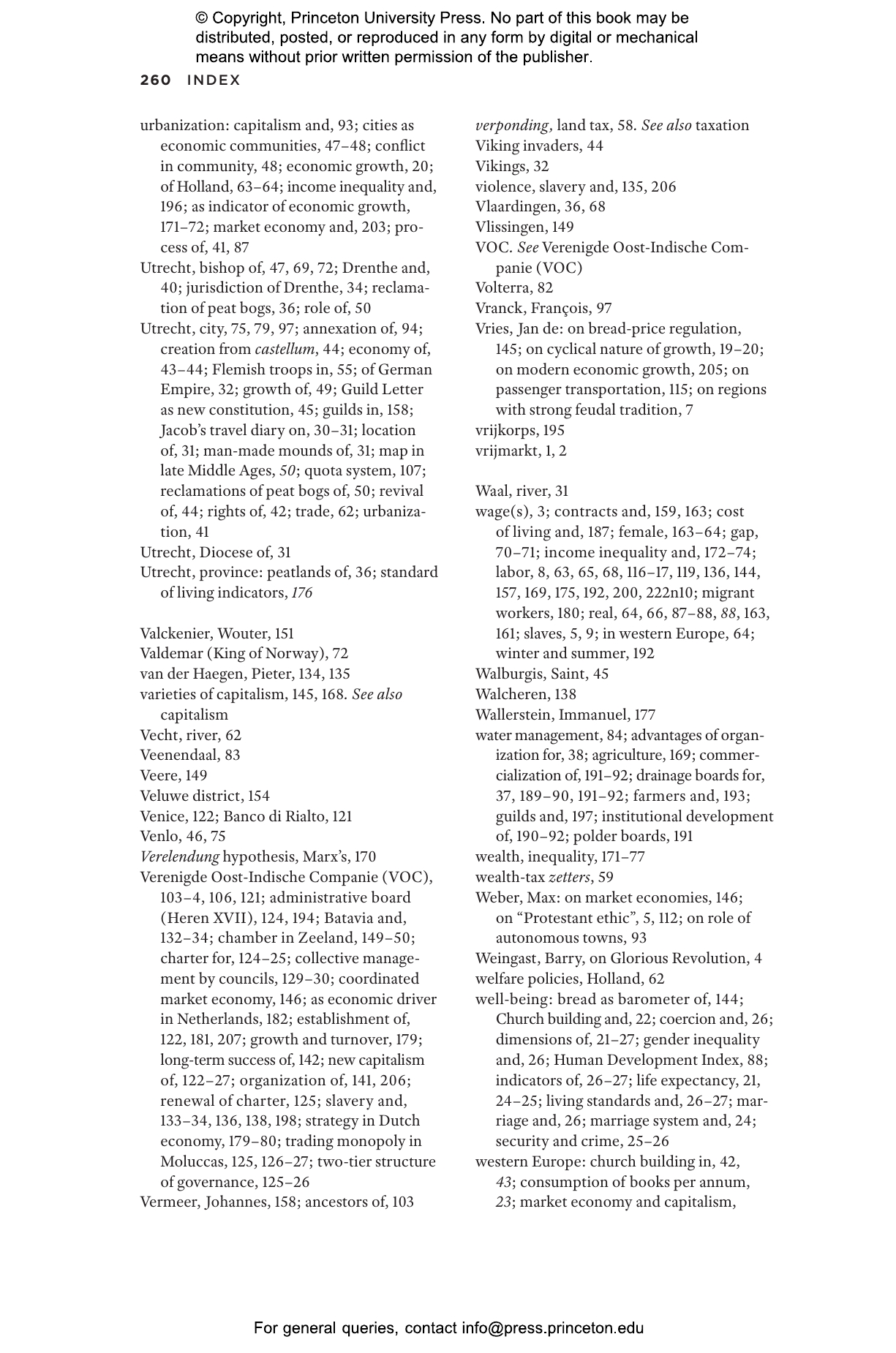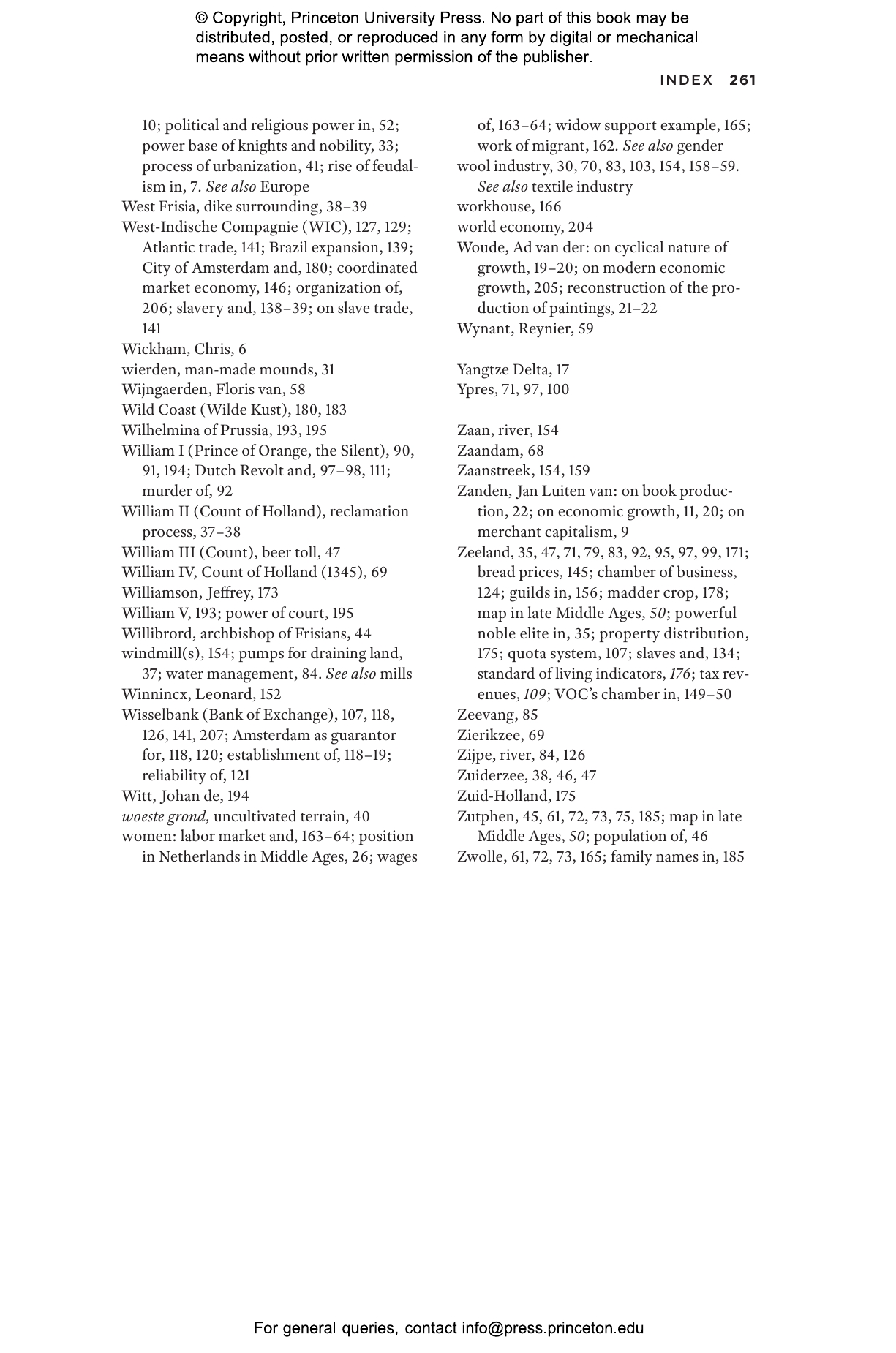The Netherlands was one of the pioneers of capitalism in the Middle Ages, giving rise to the spectacular Dutch Golden Age while ushering in an era of unprecedented, long-term economic growth. Pioneers of Capitalism examines the formal and informal institutions in the Netherlands that made this economic miracle possible, providing a groundbreaking new history of the emergence and early development of capitalism.
Drawing on the latest quantitative theories in economic research, Maarten Prak and Jan Luiten van Zanden show how Dutch cities, corporations, guilds, commons, and other private and semipublic organizations provided safeguards for market transactions in the state’s absence. Informal institutions developed in the Netherlands long before the state created public safeguards for economic activity. Prak and van Zanden argue that, in the Netherlands itself, capitalism emerged within a robust civil society that constrained and counterbalanced its centrifugal forces, but that an unrestrained capitalism ruled in the overseas territories. Rather than collapsing under unrestricted greed, the Dutch economy flourished, but prosperity at home came at the price of slavery and other dire consequences for people outside Europe.
Pioneers of Capitalism offers a panoramic account of the early history of capitalism, revealing how a small region of medieval Europe transformed itself into a powerhouse of sustained economic growth, and changed the world in the process.
Awards and Recognition
- A FiveBooks Best Economic History Book of the Year
Maarten Prak is professor of social and economic history at Utrecht University. His books include Citizens without Nations: Urban Citizenship in Europe and the World, c. 1000–1789. Jan Luiten van Zanden is professor of global economic history at Utrecht University. His books include The Strictures of Inheritance: The Dutch Economy in the Nineteenth Century (Princeton).
"An excellent book."—Tyler Cowen, Marginal Revolution
"[Prak and van Zanden] have provided a path forward for studying economic history that takes complexity seriously without letting it prevent us from getting to the important truths of economic history. One can only hope that more social and economic historians follow Prak and van Zanden’s path in the future."—Samuel Gregg, Engelsberg Ideas
"[Pioneers of Capitalism] will be the standard work on the topic for years and perhaps decades to come, as it offers a very well-written and powerful account of the rise and fall of the Dutch Republic in the medieval and early modern periods."—Gijs Dreijer, Business History Review
"[Pioneers of Capitalism] surpasses the previous syntheses of Dutch capitalism by bringing it in line with recent developments in economic history. . . . Fascinating."—Bas Spliet, Journal of European Economic History
"The authors elegantly combine qualitative and quantitative approaches in their analysis. . . . An exemplary standard in social science research."—George Hong Jiang, Journal of Interdisciplinary History
"Capitalism can always be made better, something of which the early Dutch capitalists were well aware. Prak and van Zanden do us a great service by reminding us."—Erik Jones, Survival
“The economy and polity of the Dutch Golden Age is well traveled scholarly territory. Prak and van Zanden add critical knowledge about their medieval foundations as well as penetrating insight into the interaction between markets, civic associations, and ‘varieties of capitalism’ in the development process. This highly readable book will both instruct and delight.”—Anne E. C. McCants, Massachusetts Institute of Technology
“This is simply the best brief account of Dutch capitalism ever written. It offers fresh historical insights concerning the interrelationships of market, state, and civil society at the same time that it suggests how modern societies might fashion a capitalism we can live with and even prosper under.”—Jan de Vries, University of California, Berkeley
